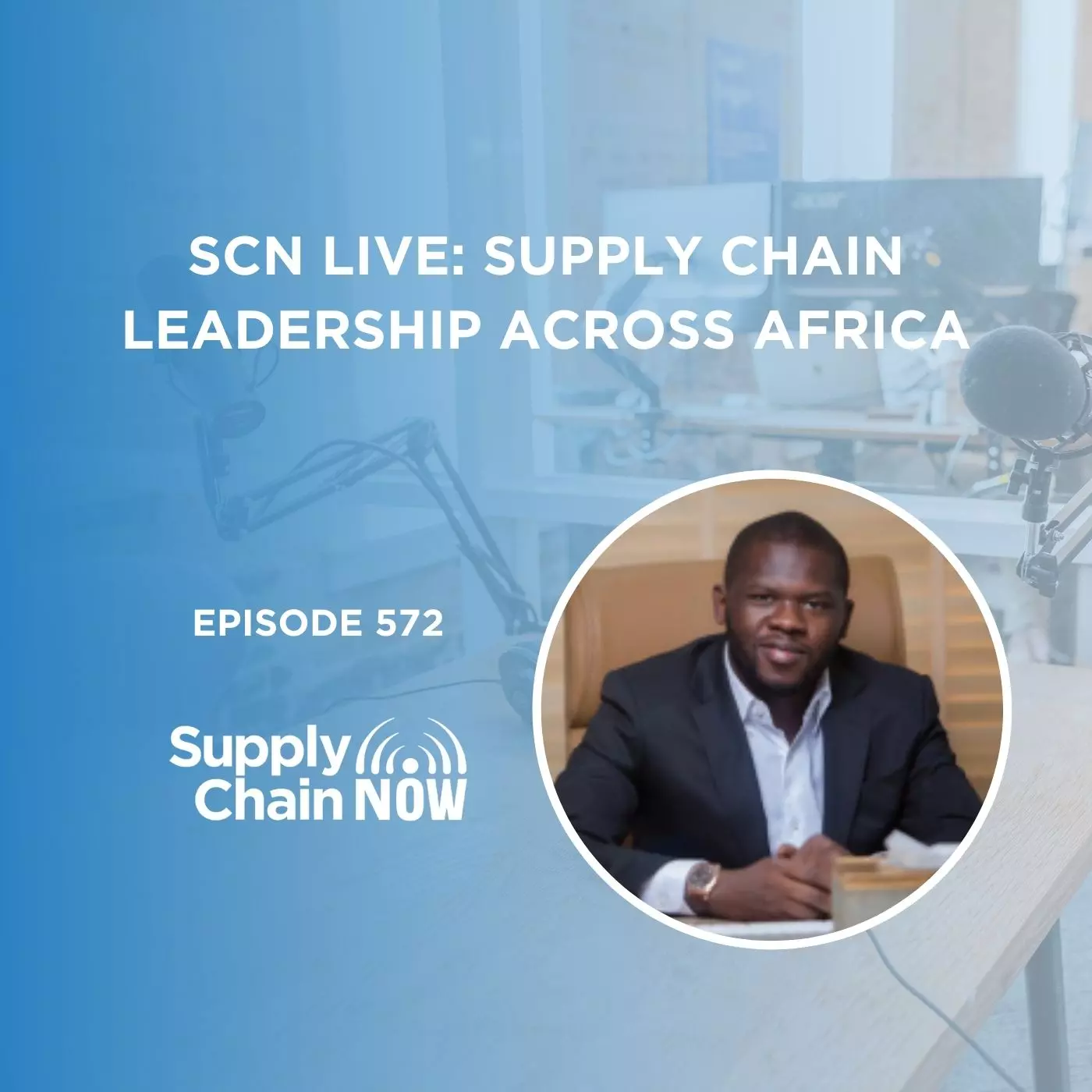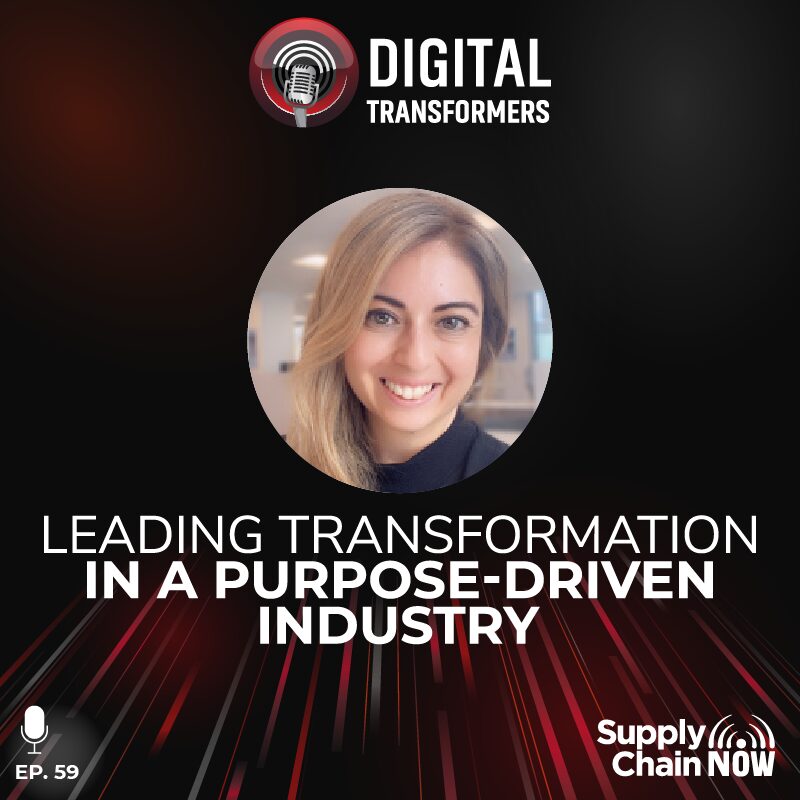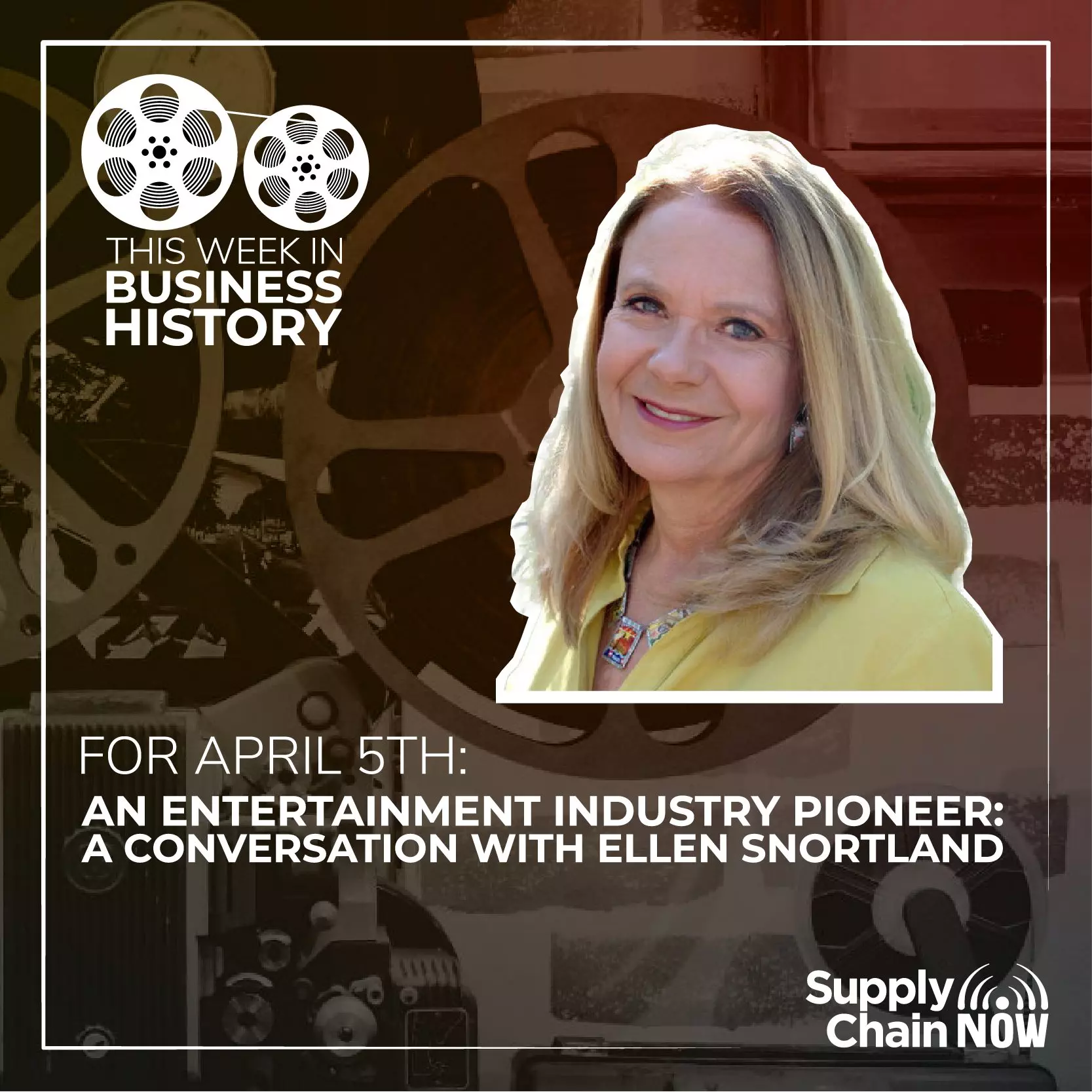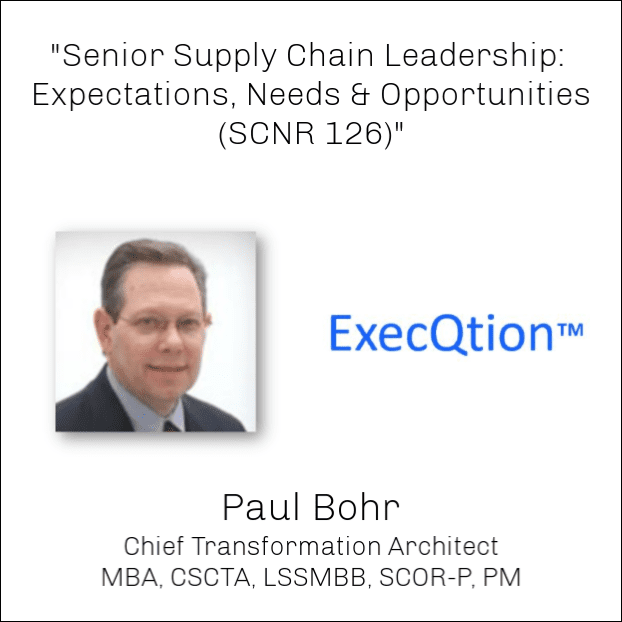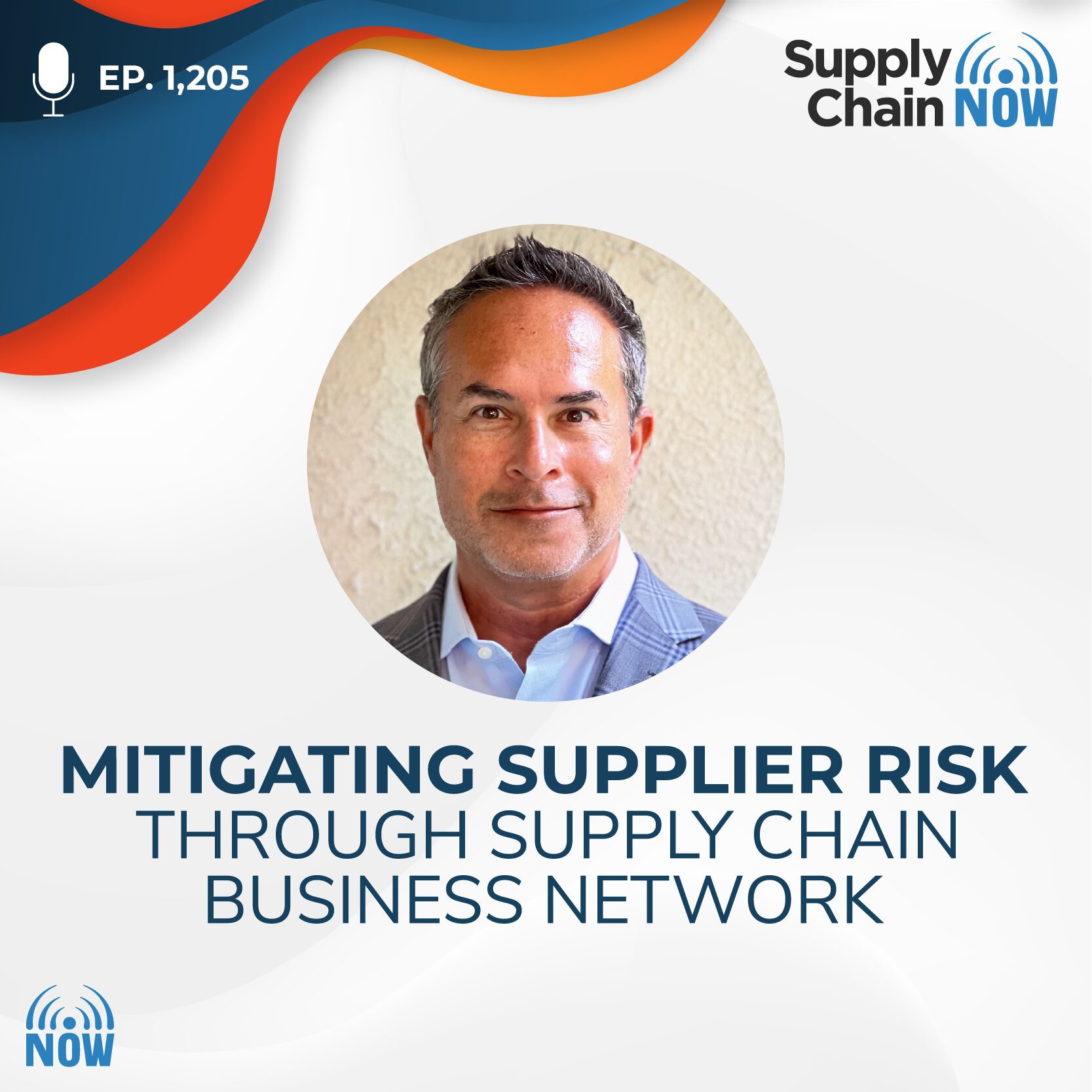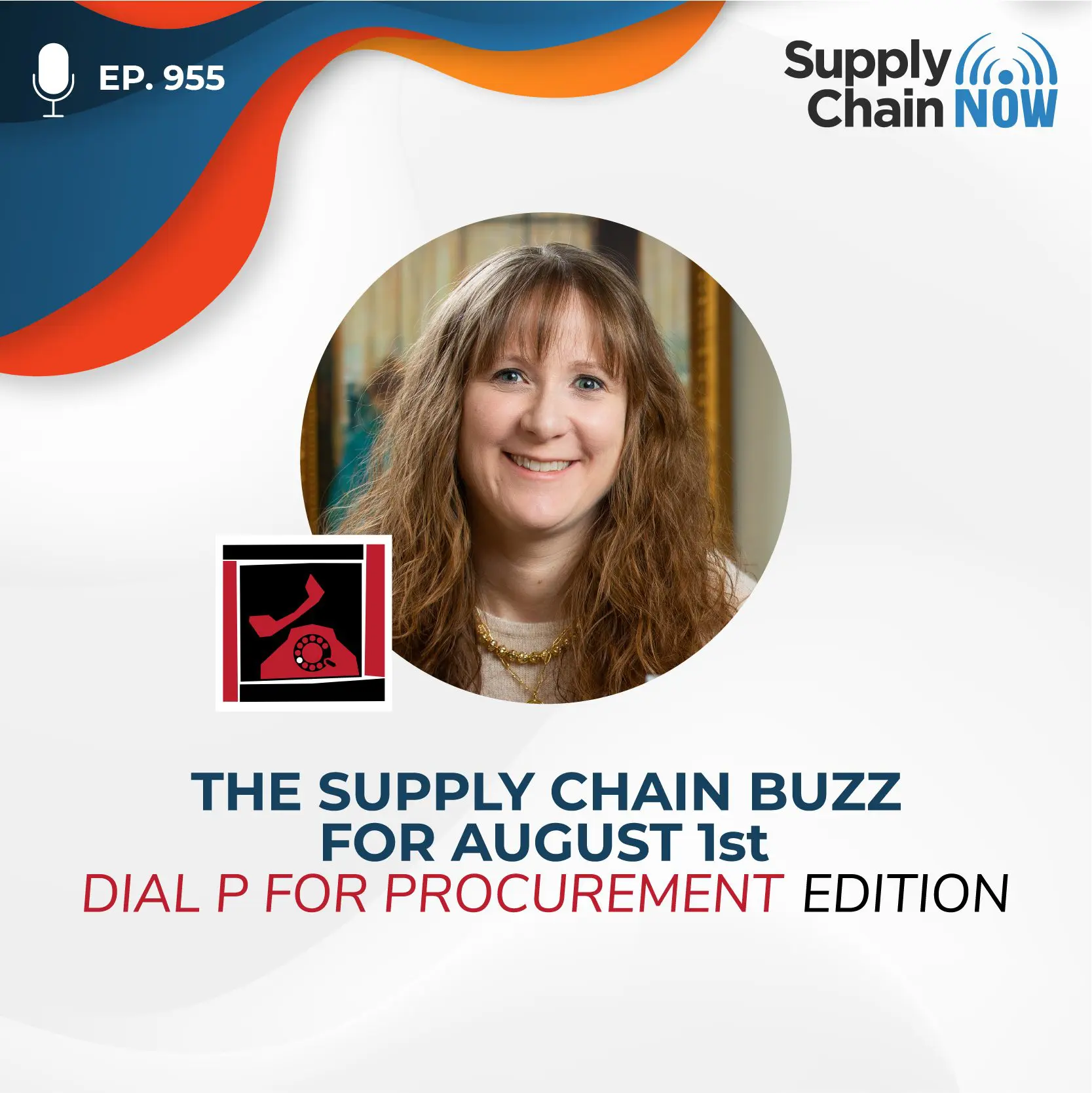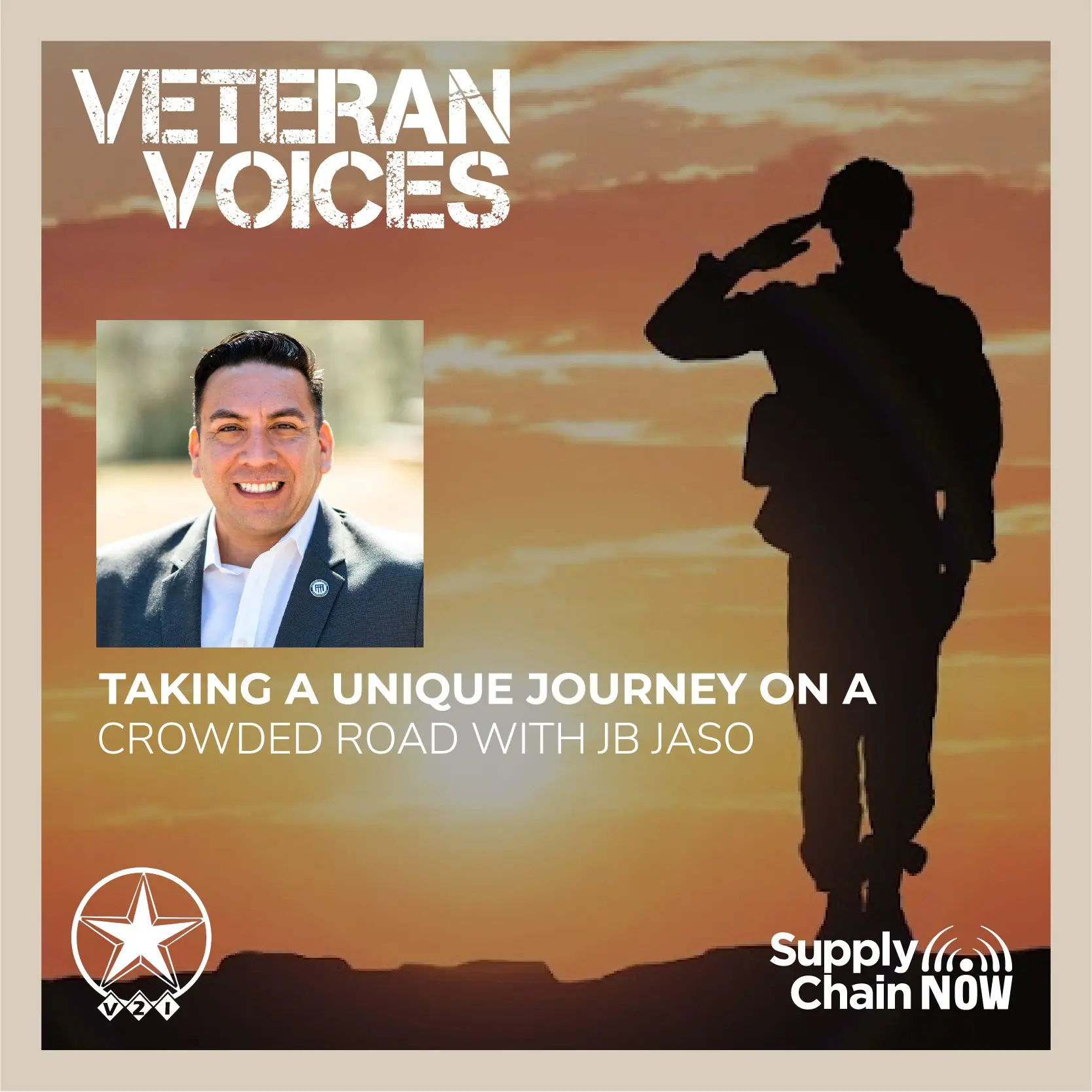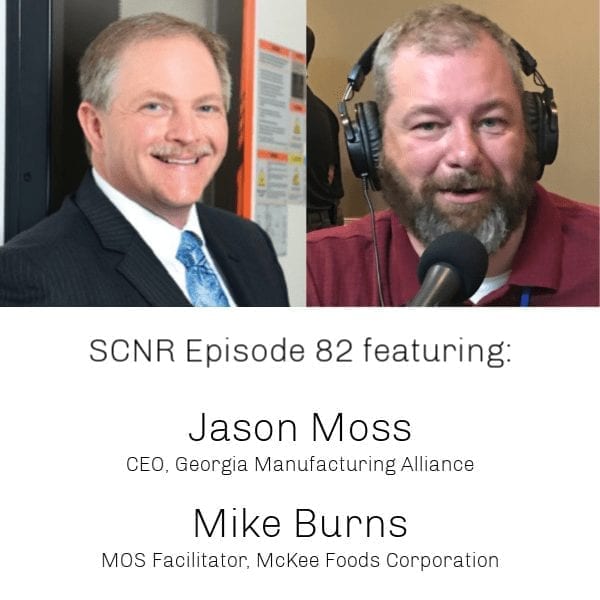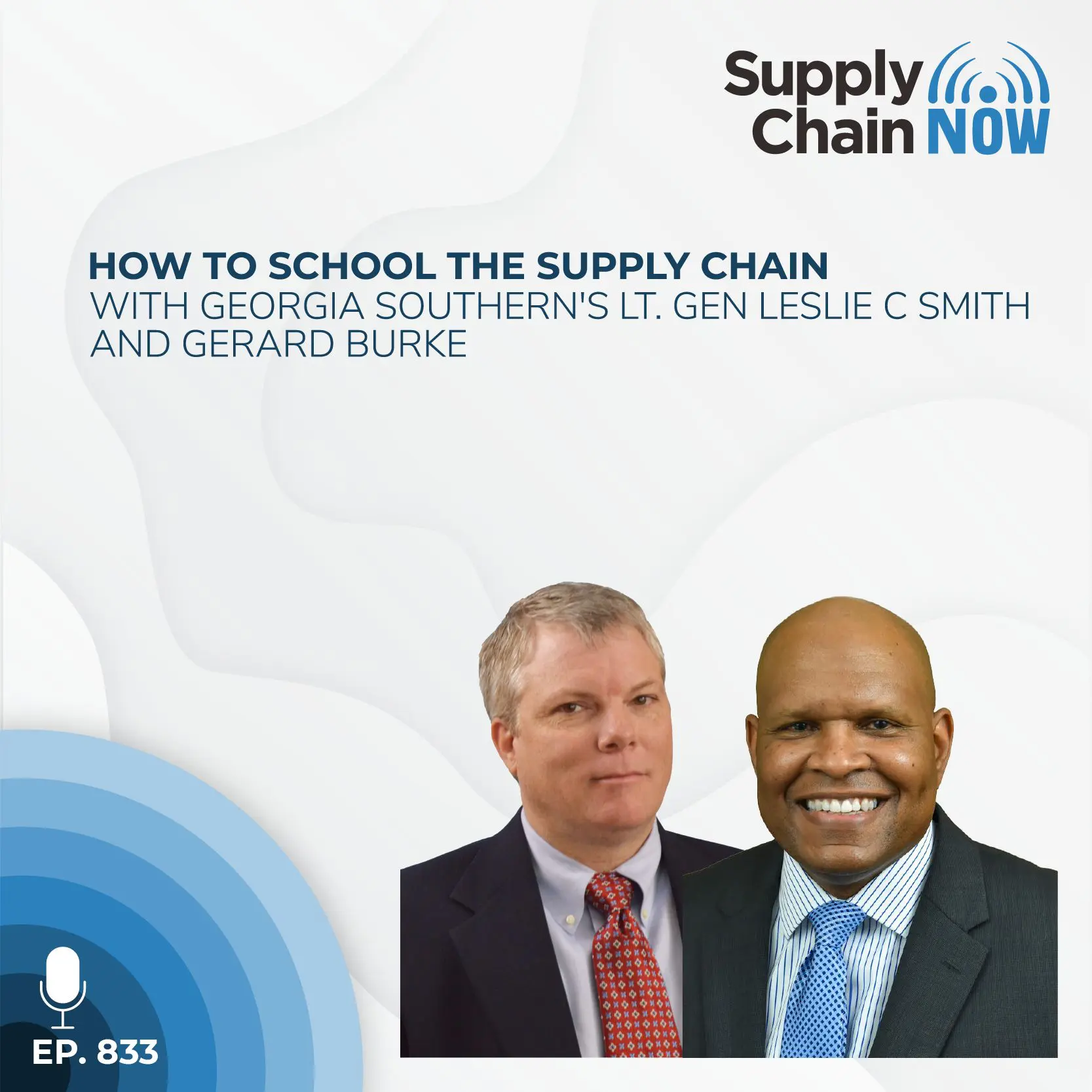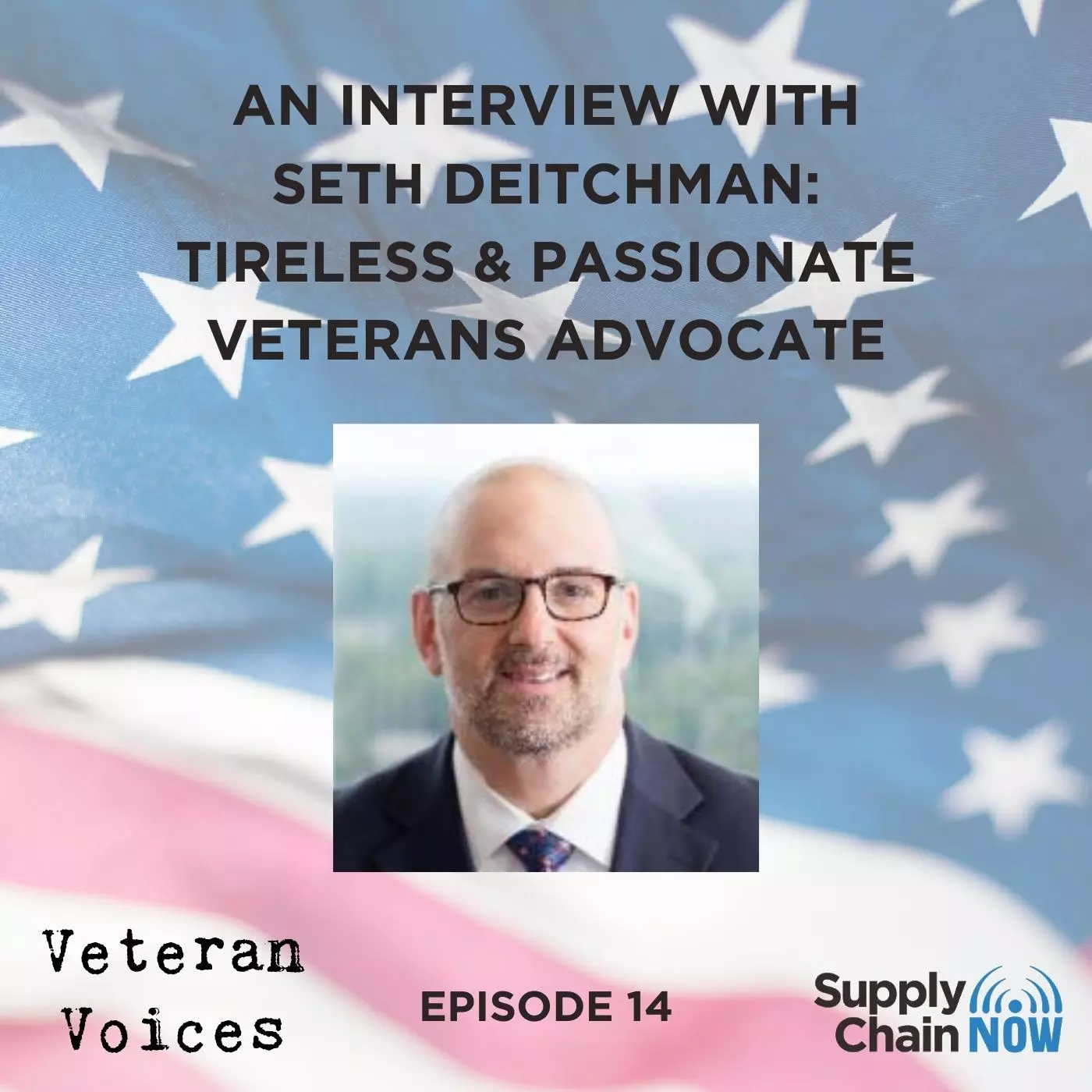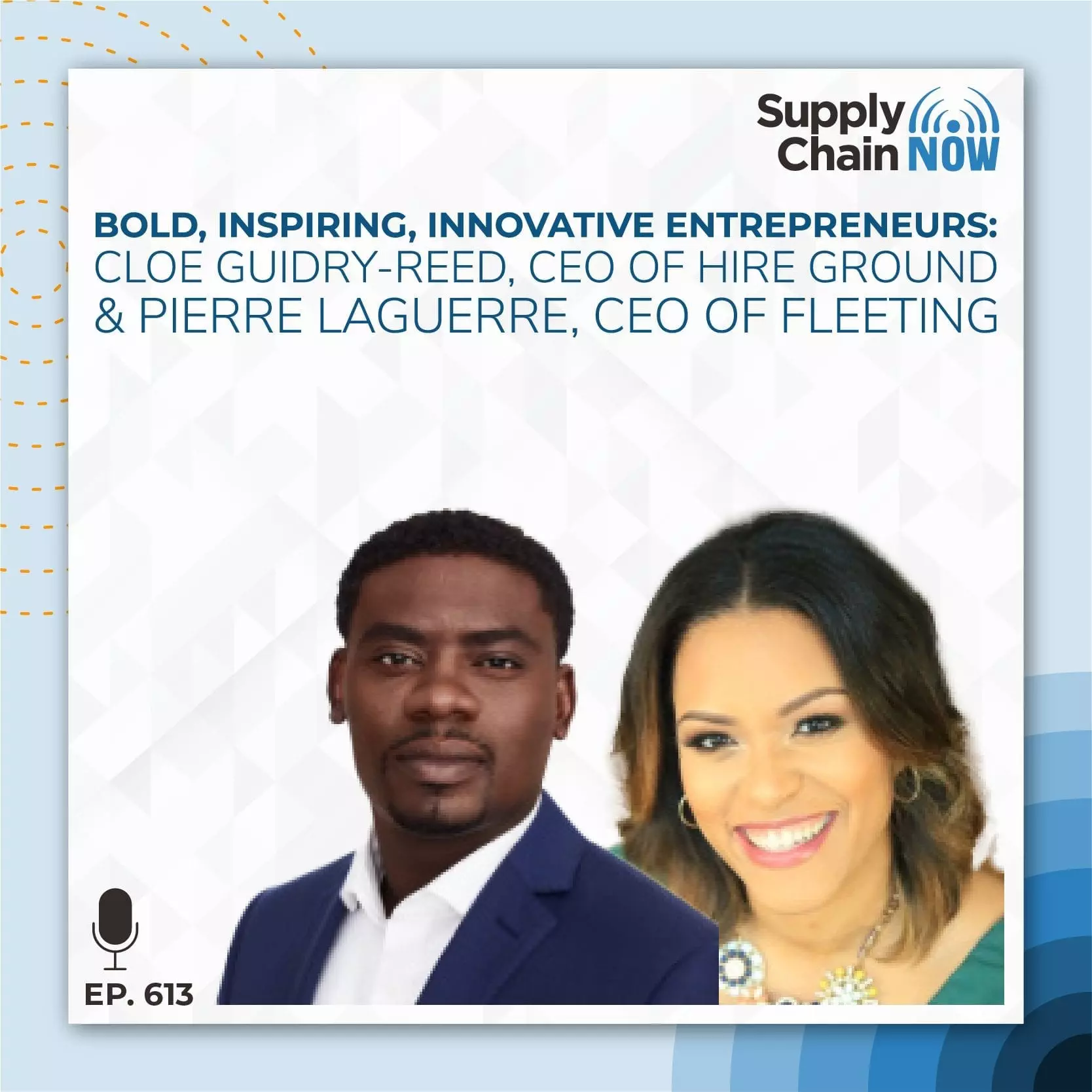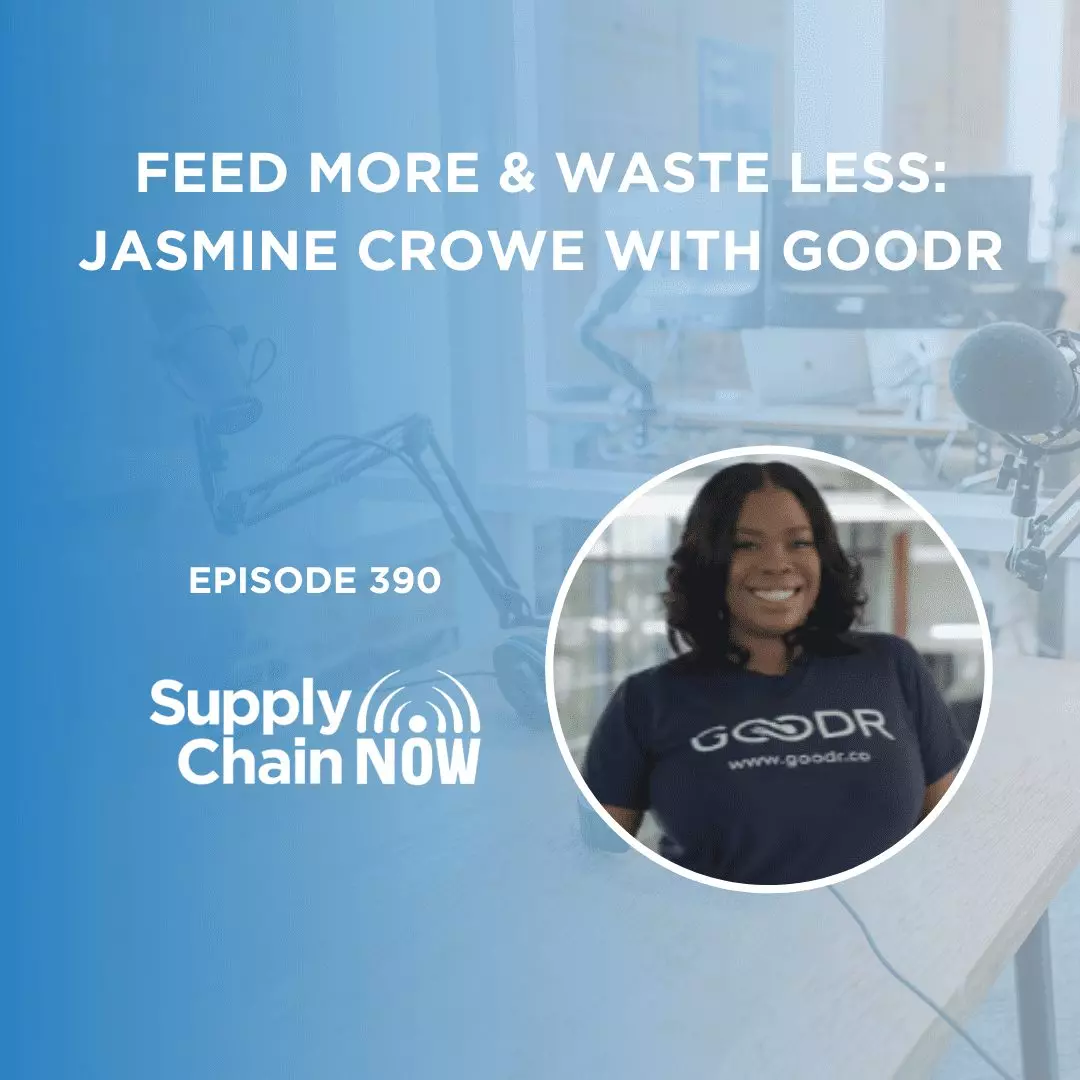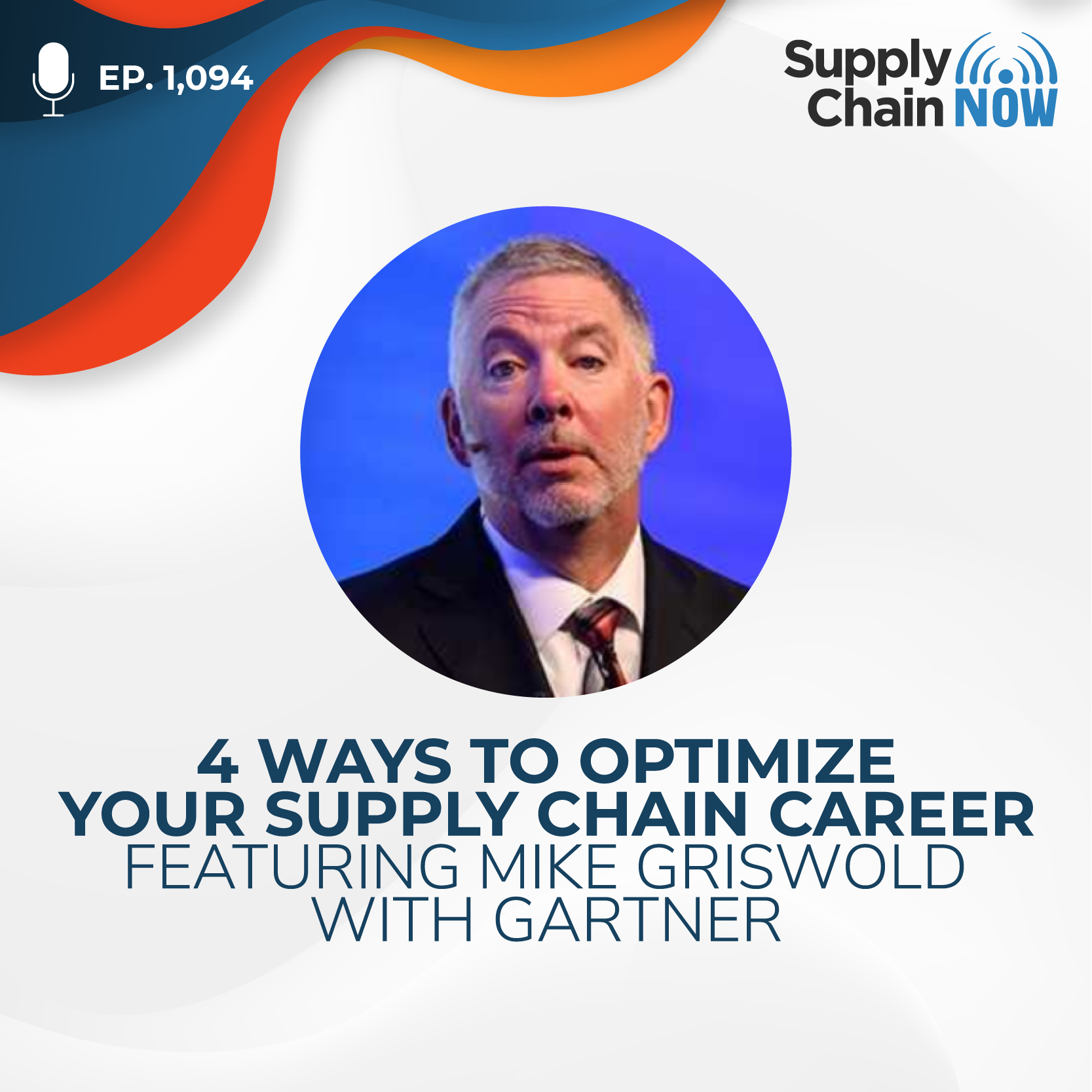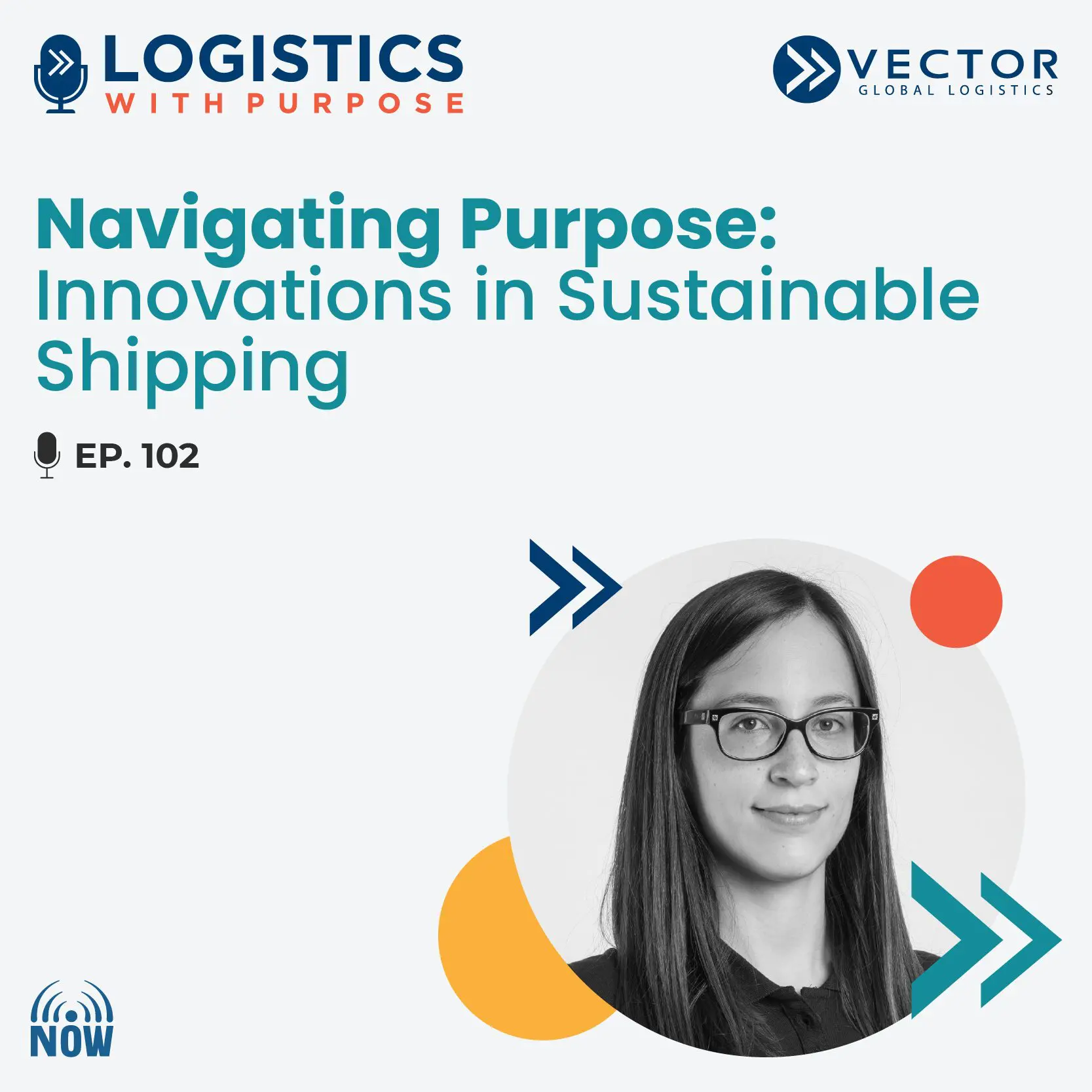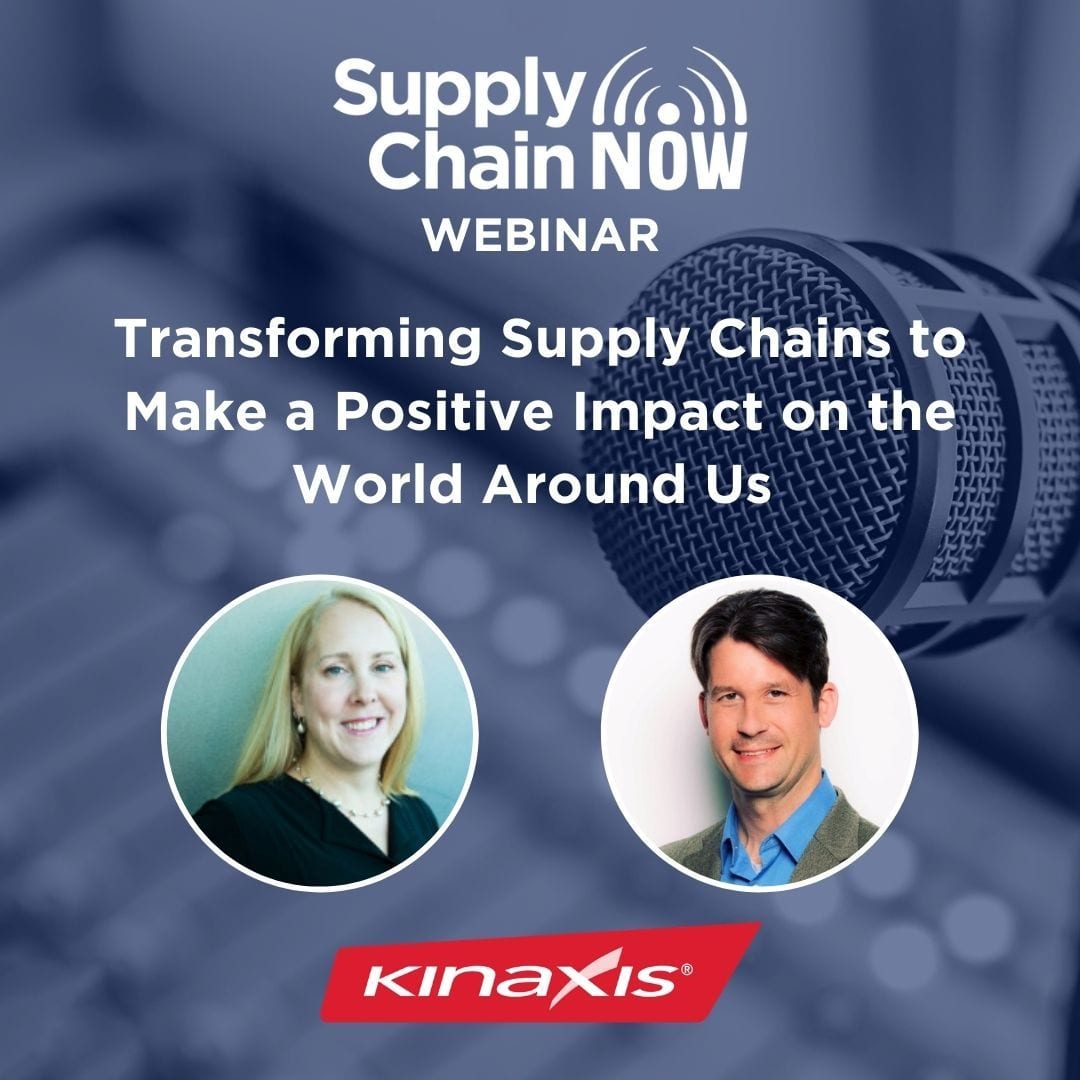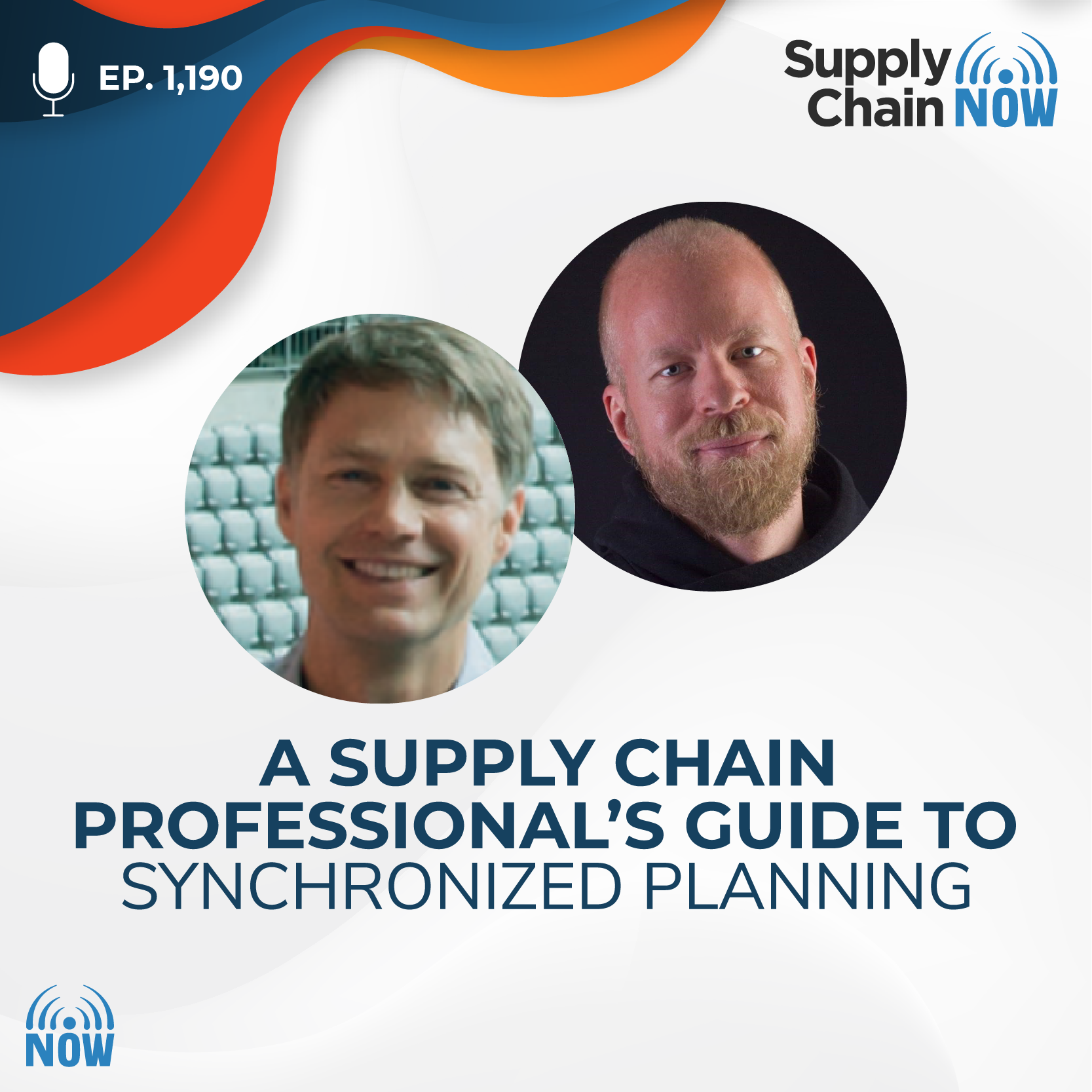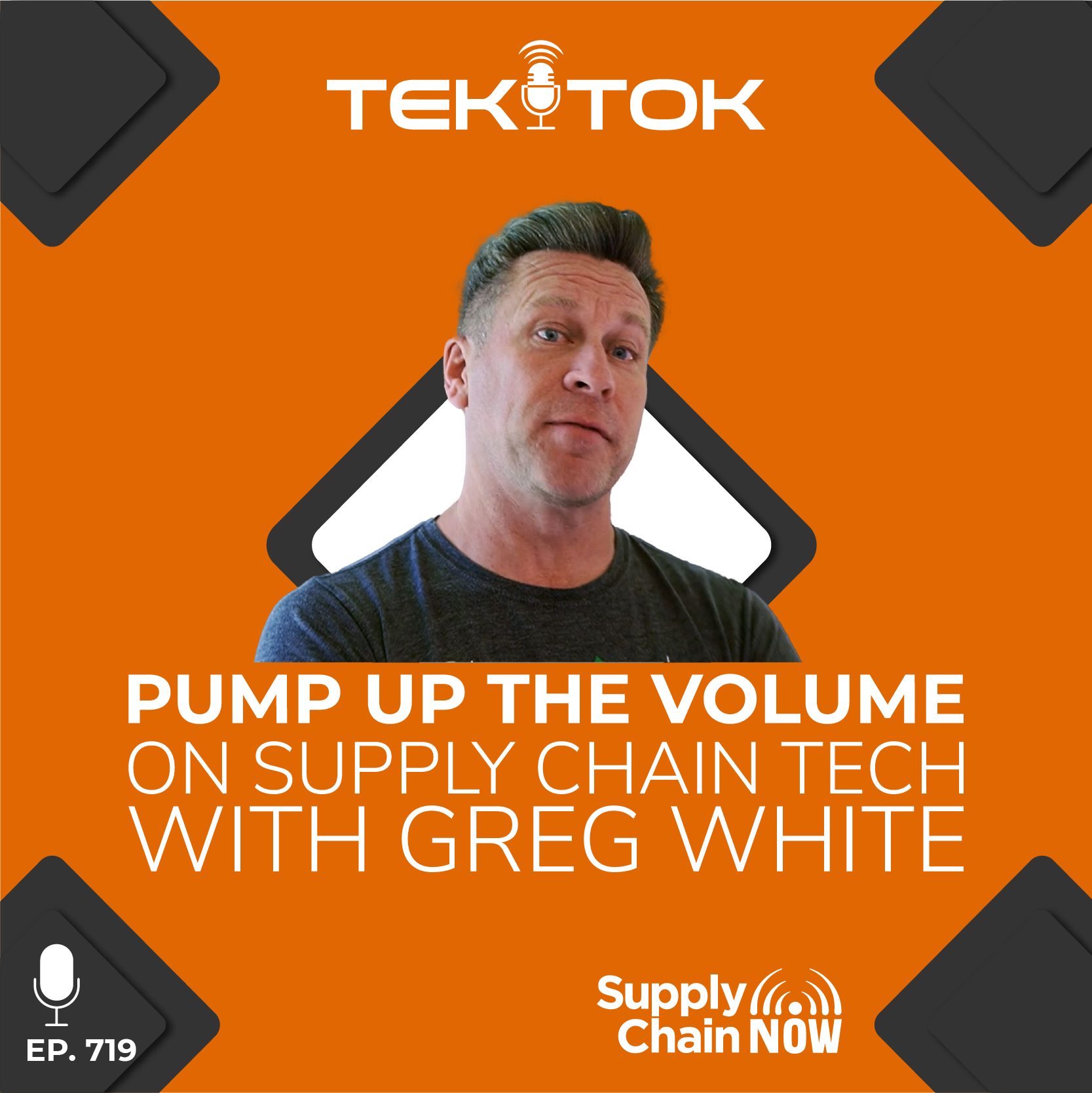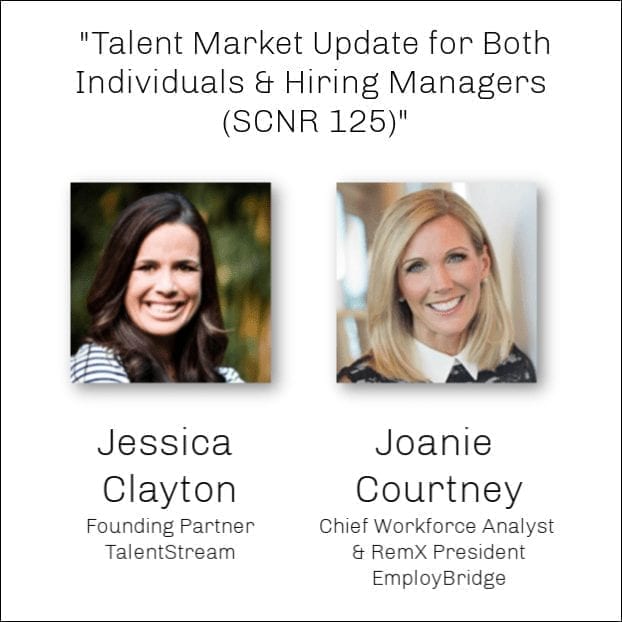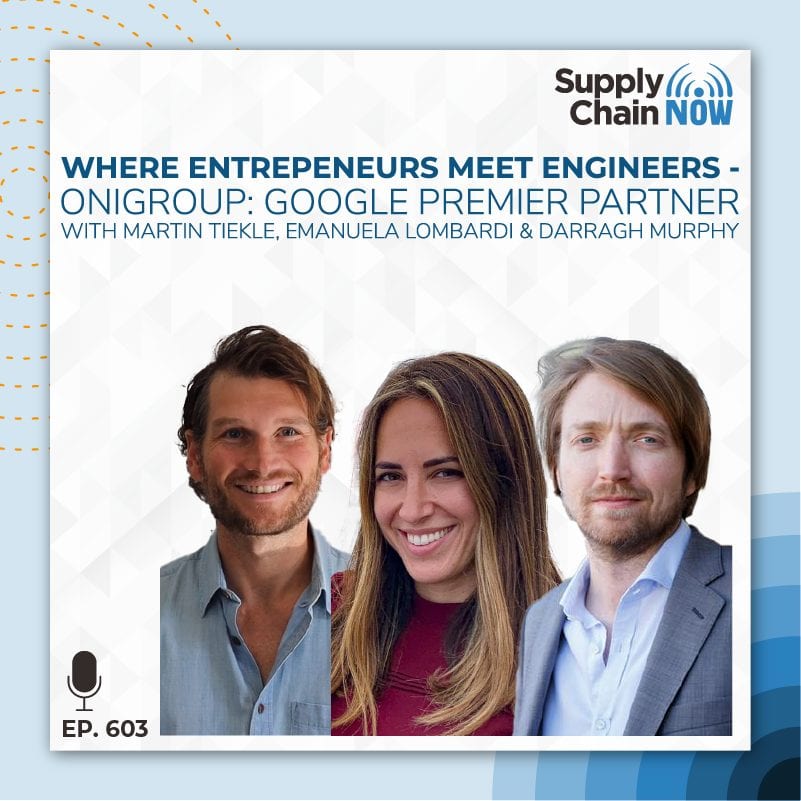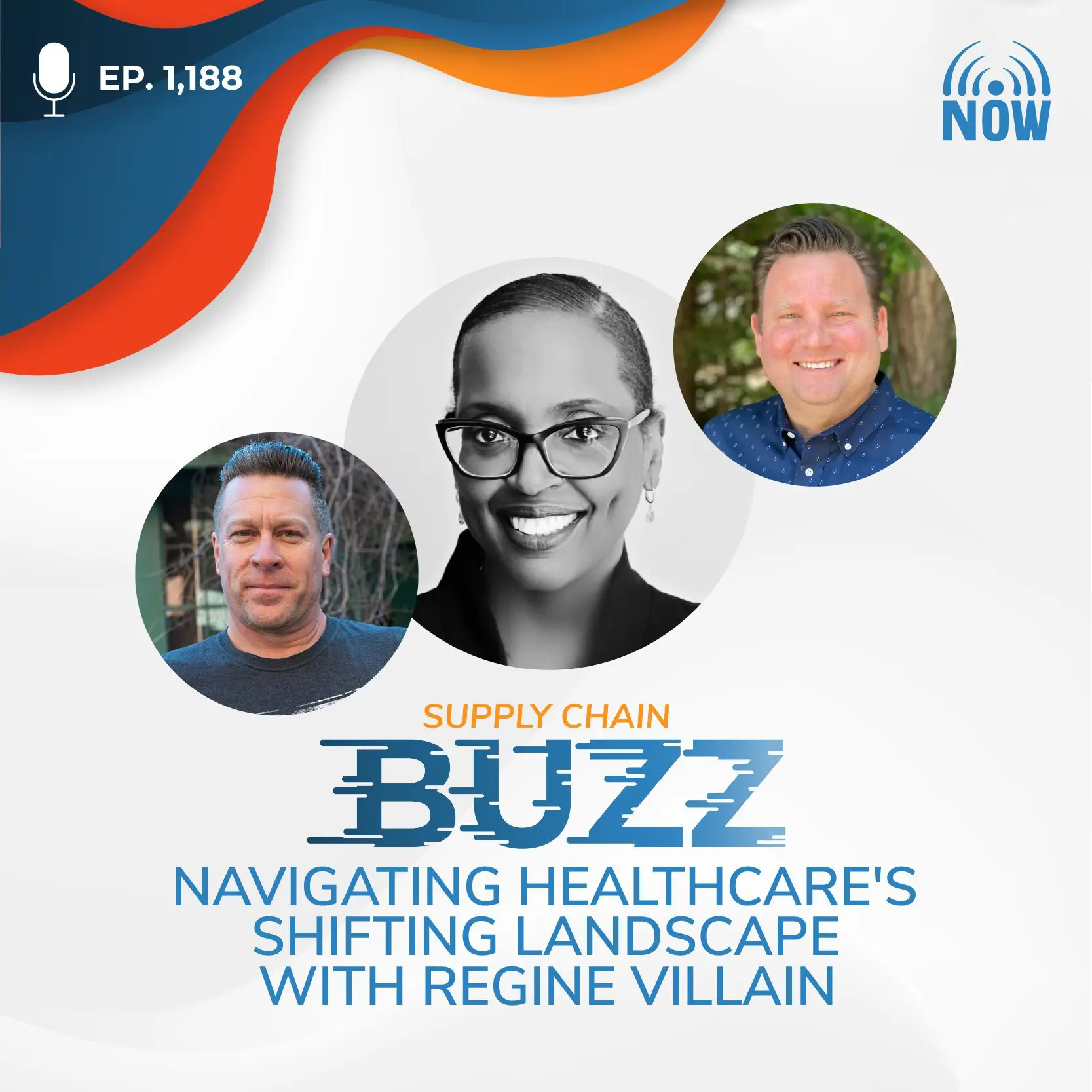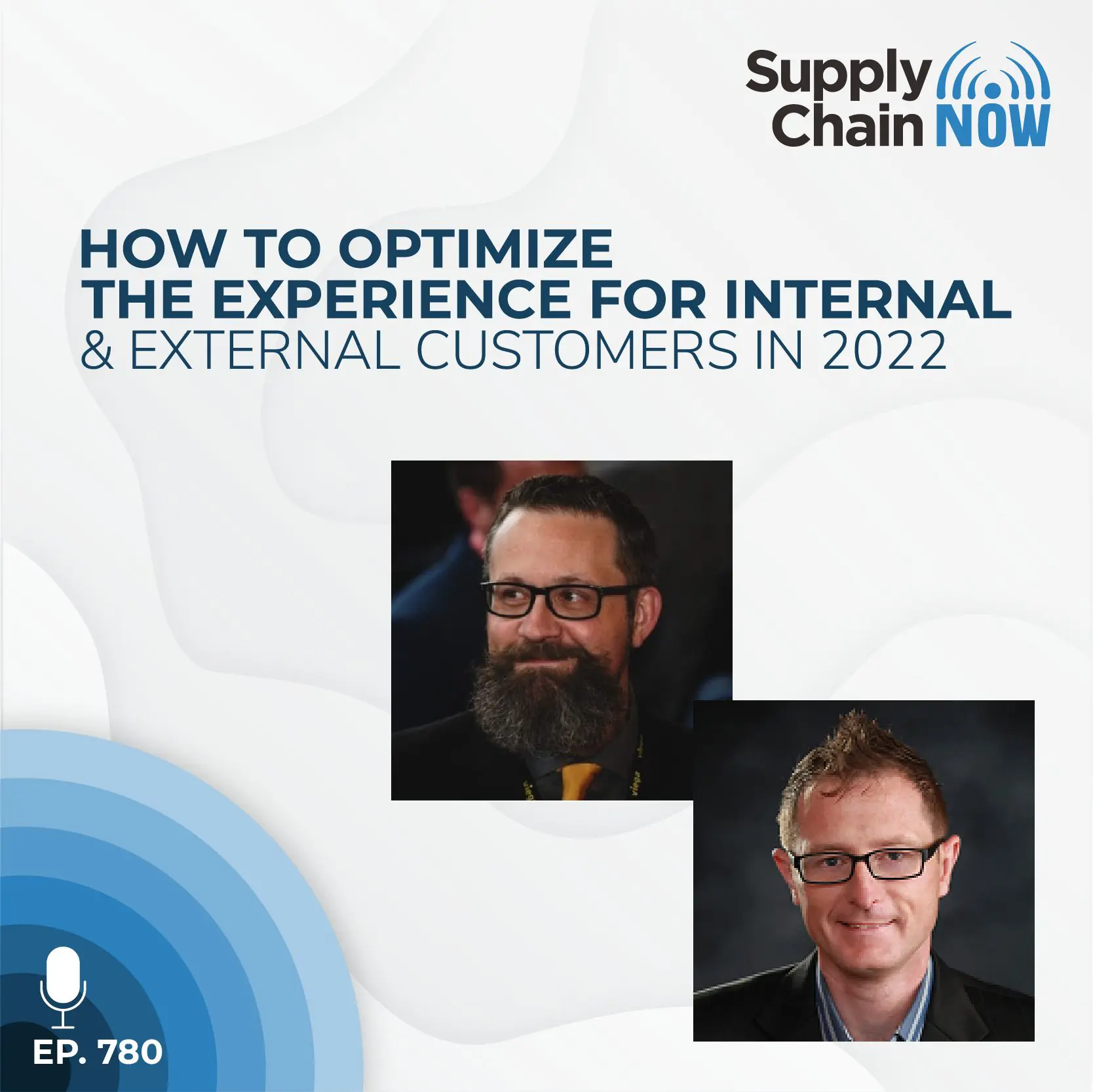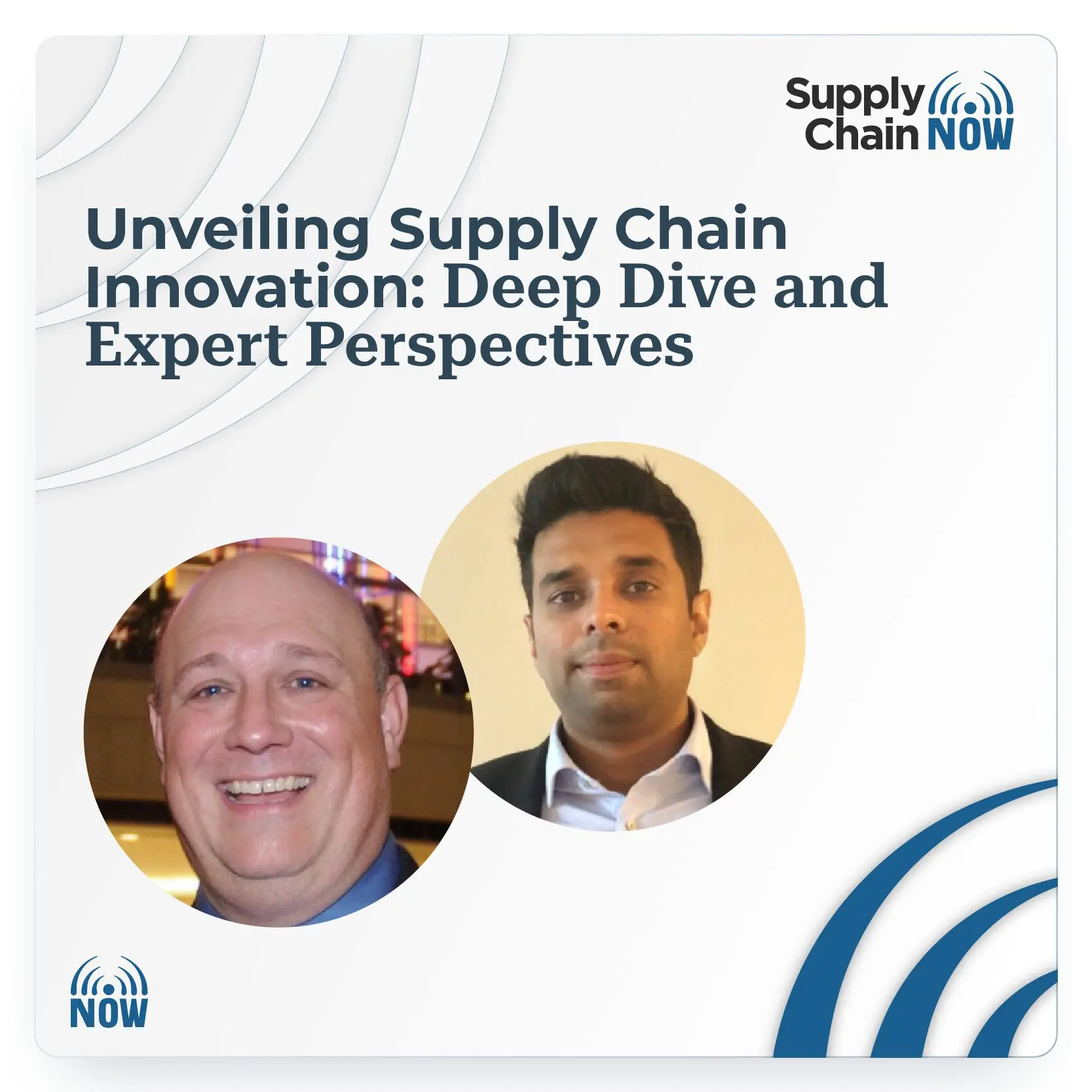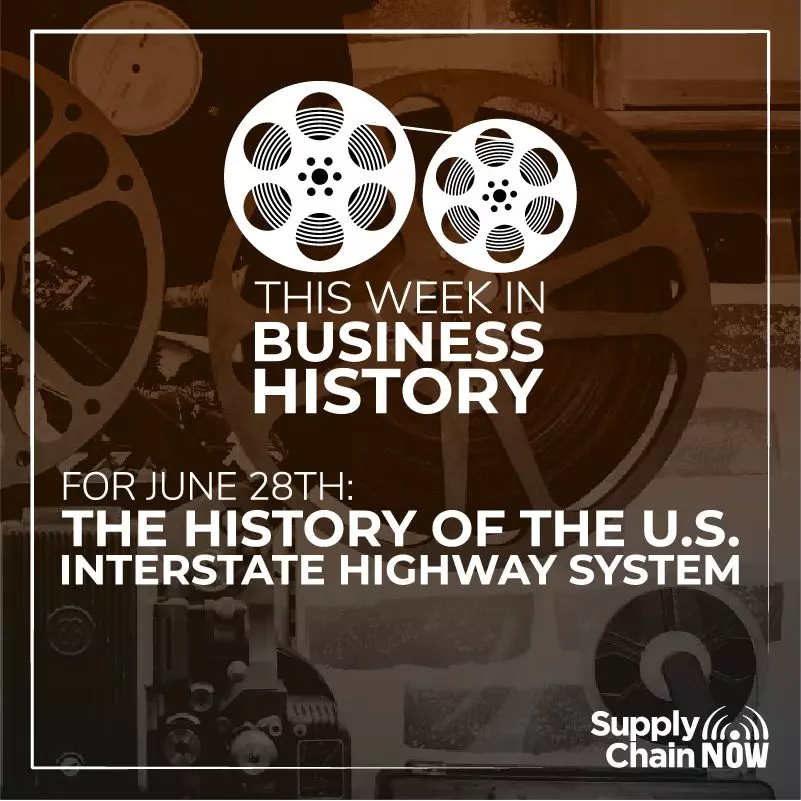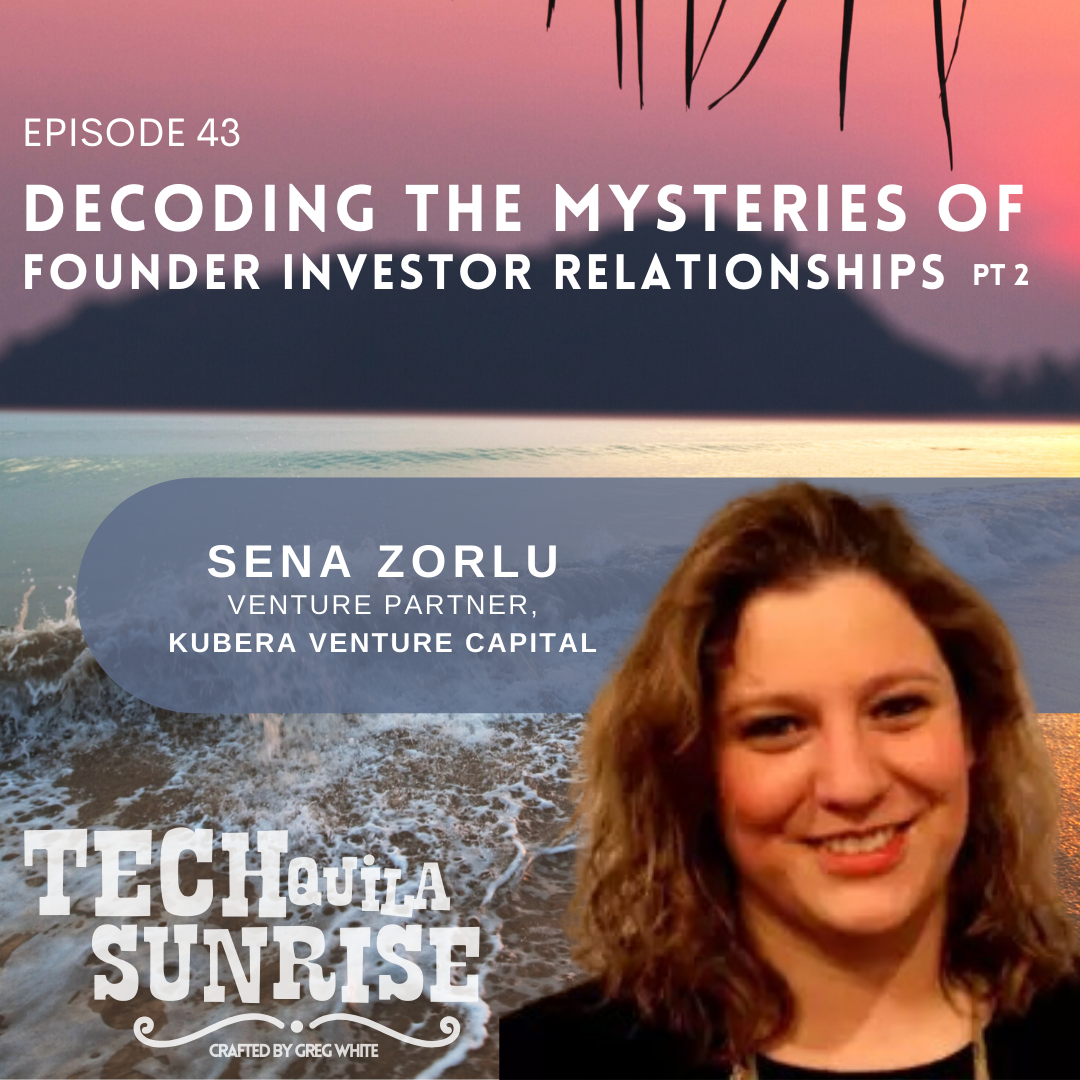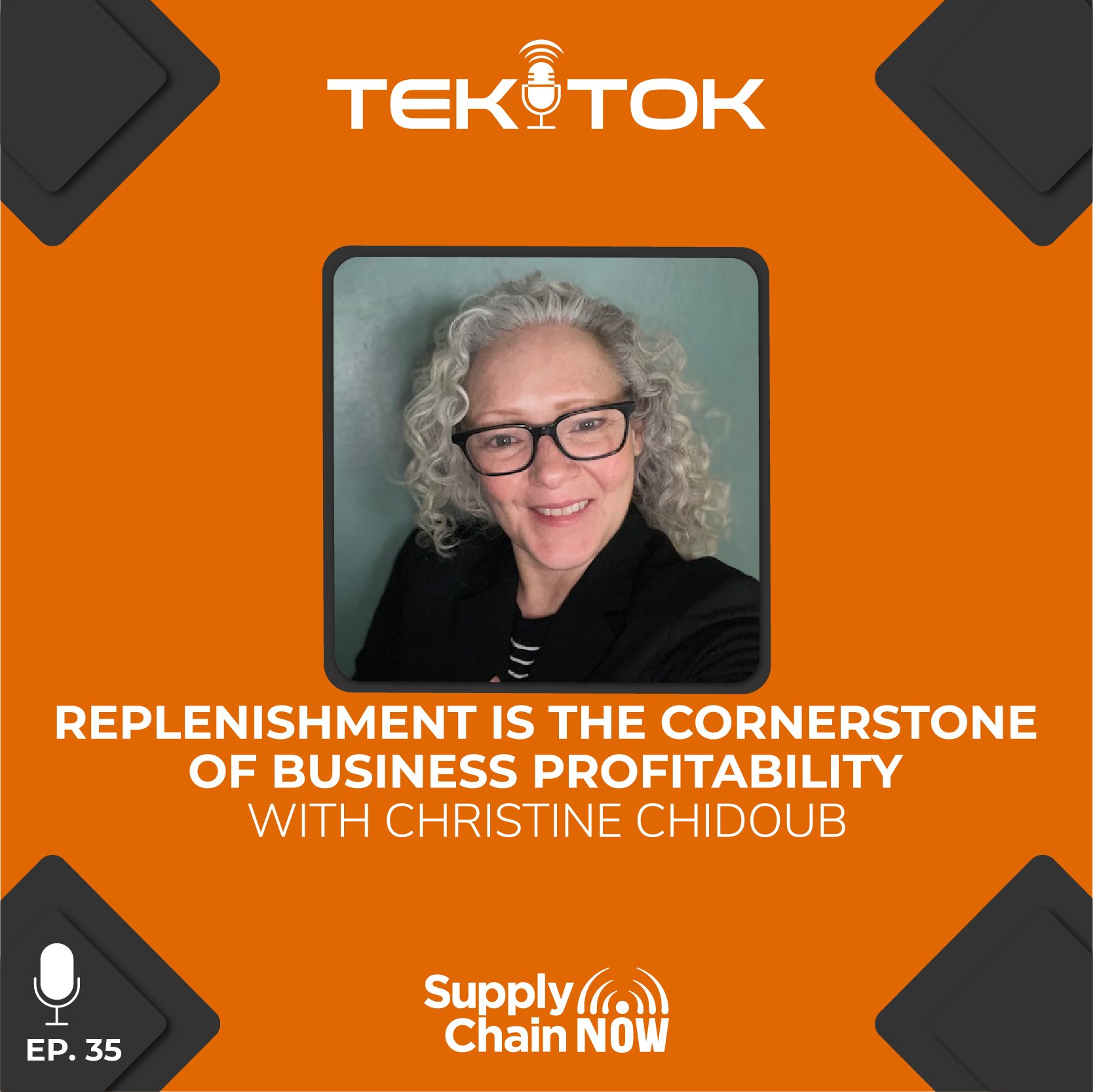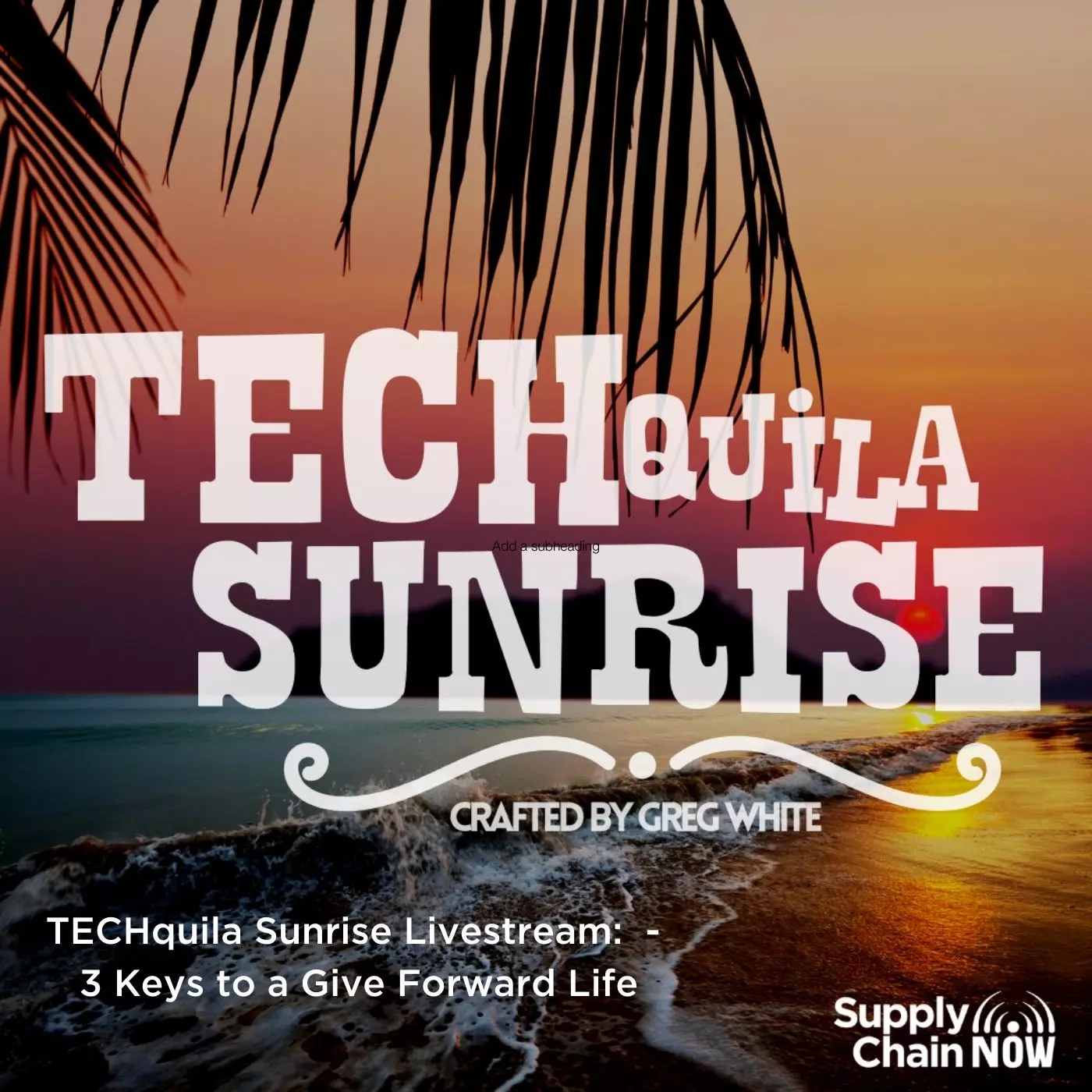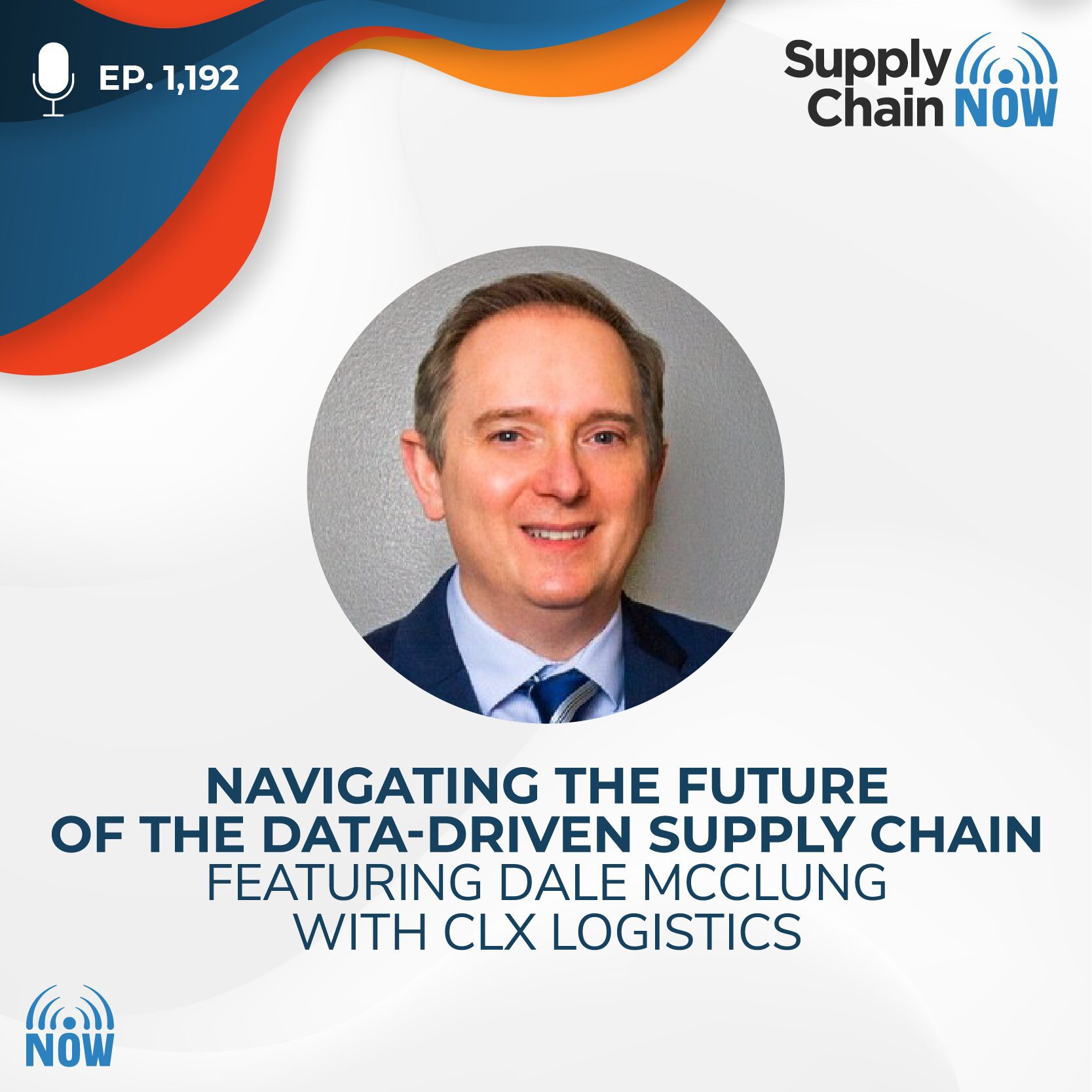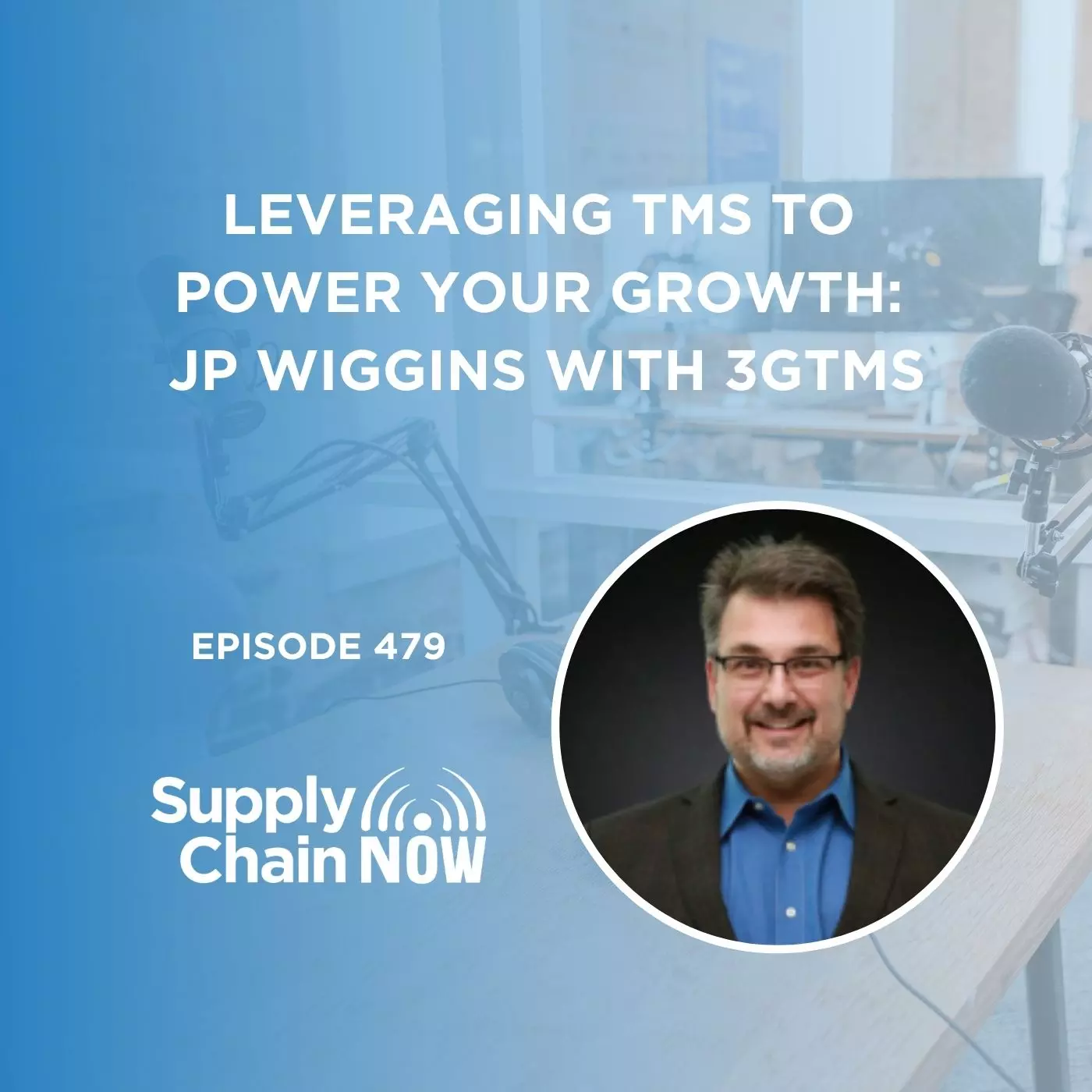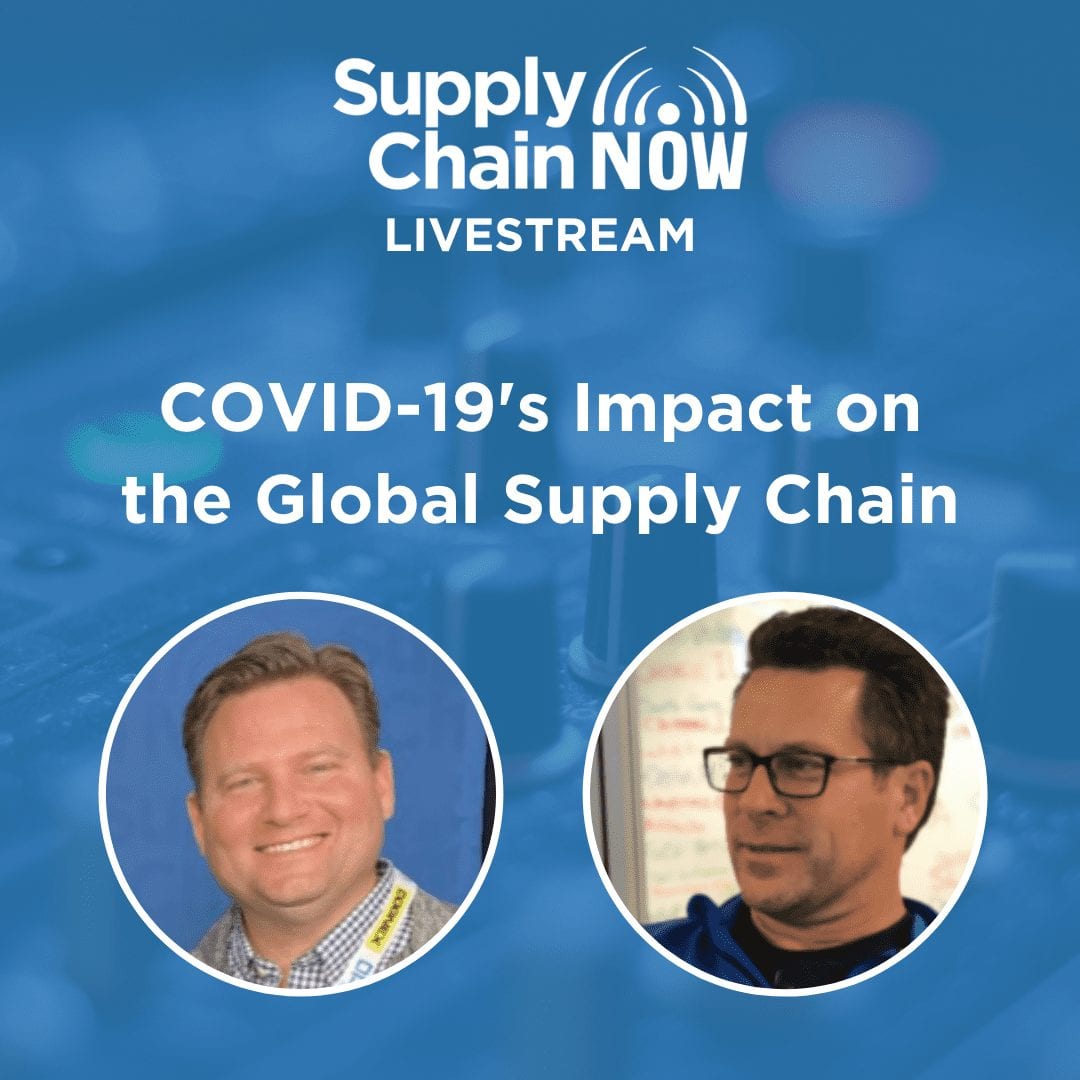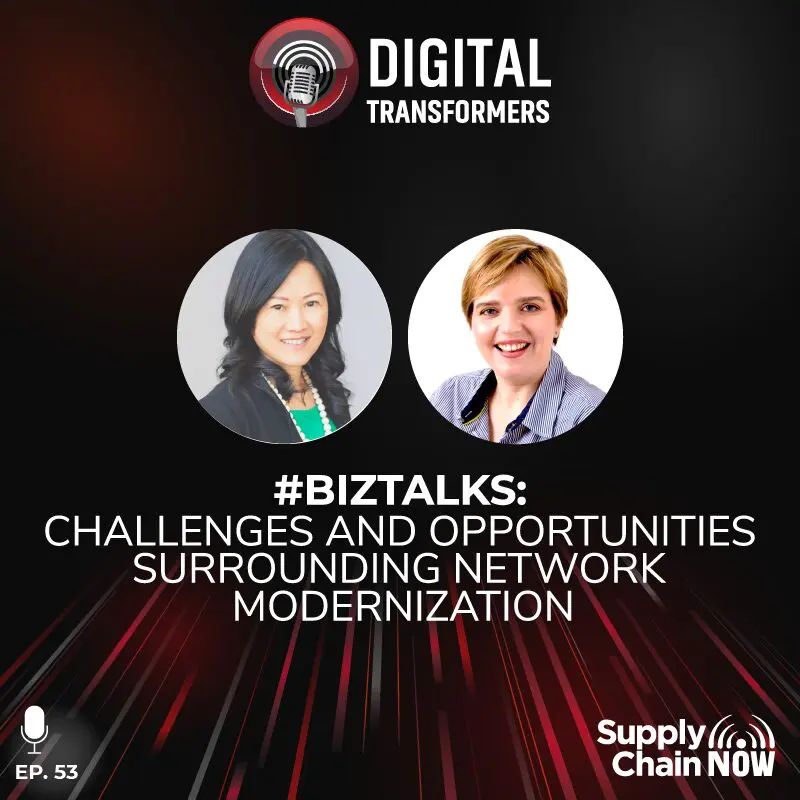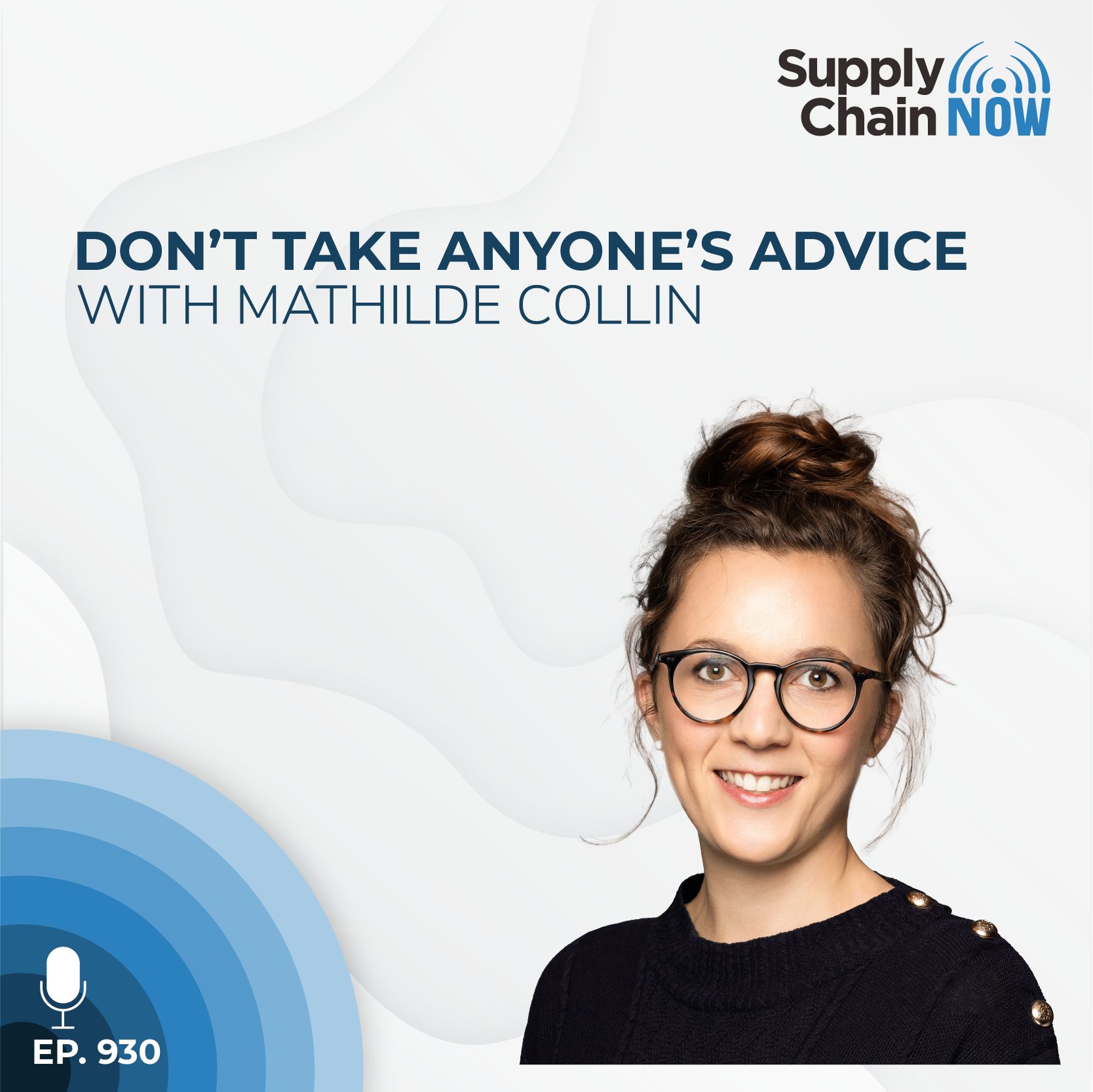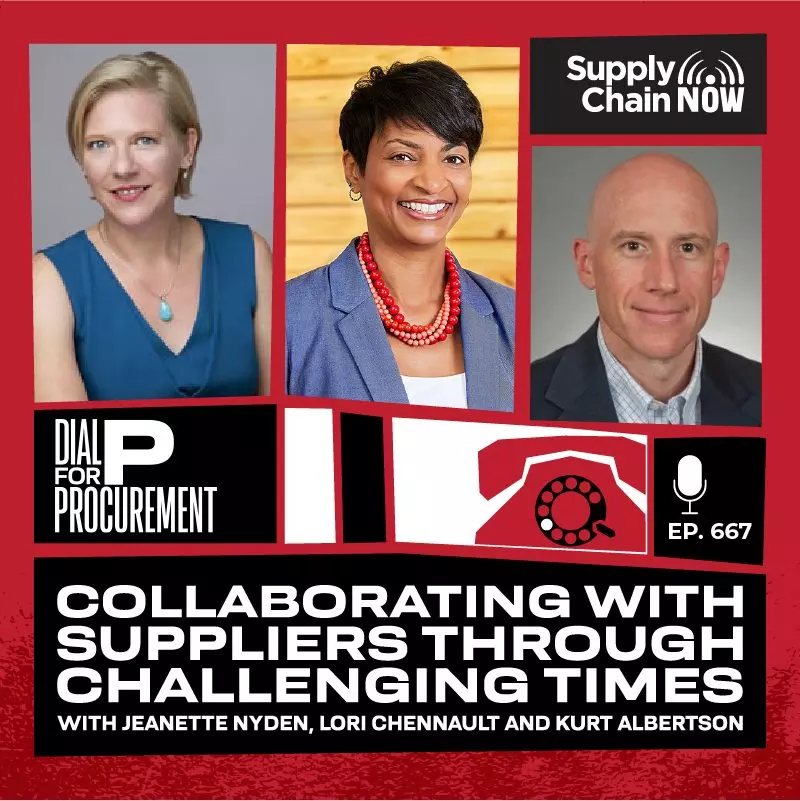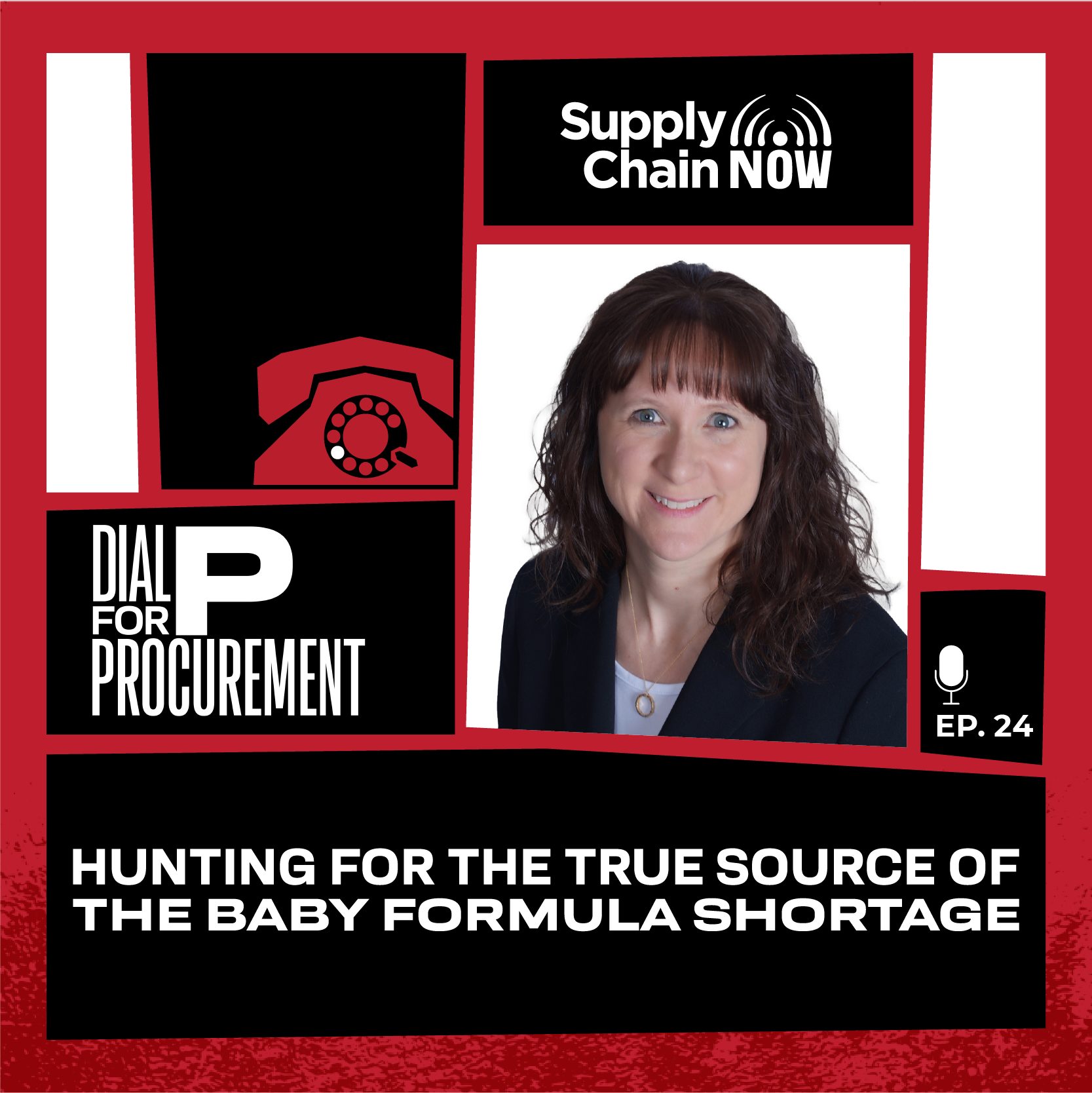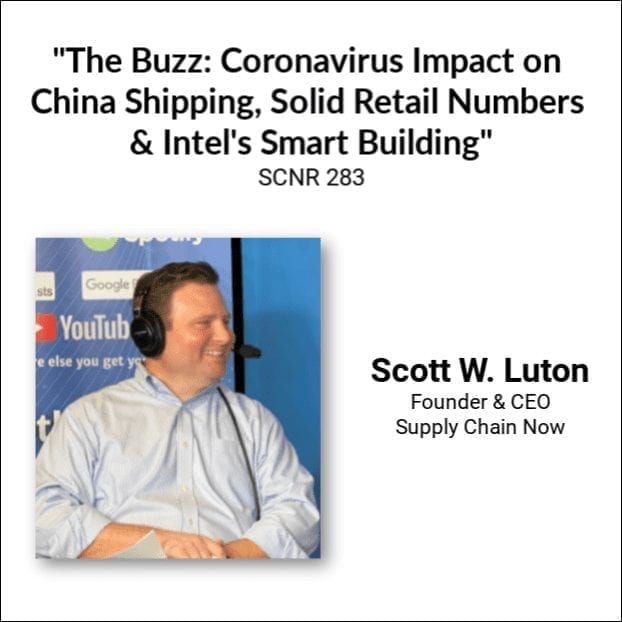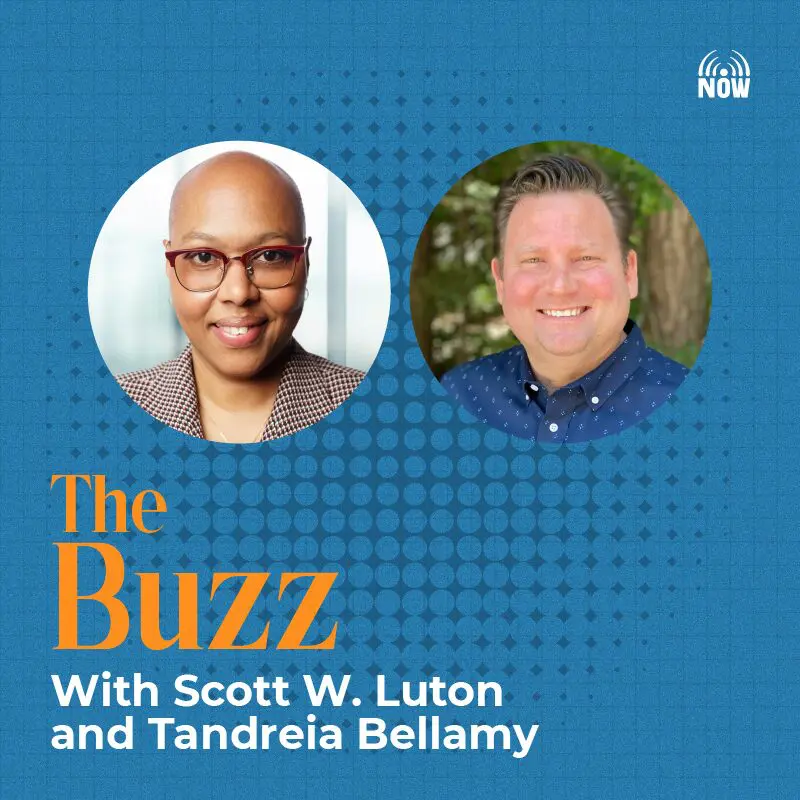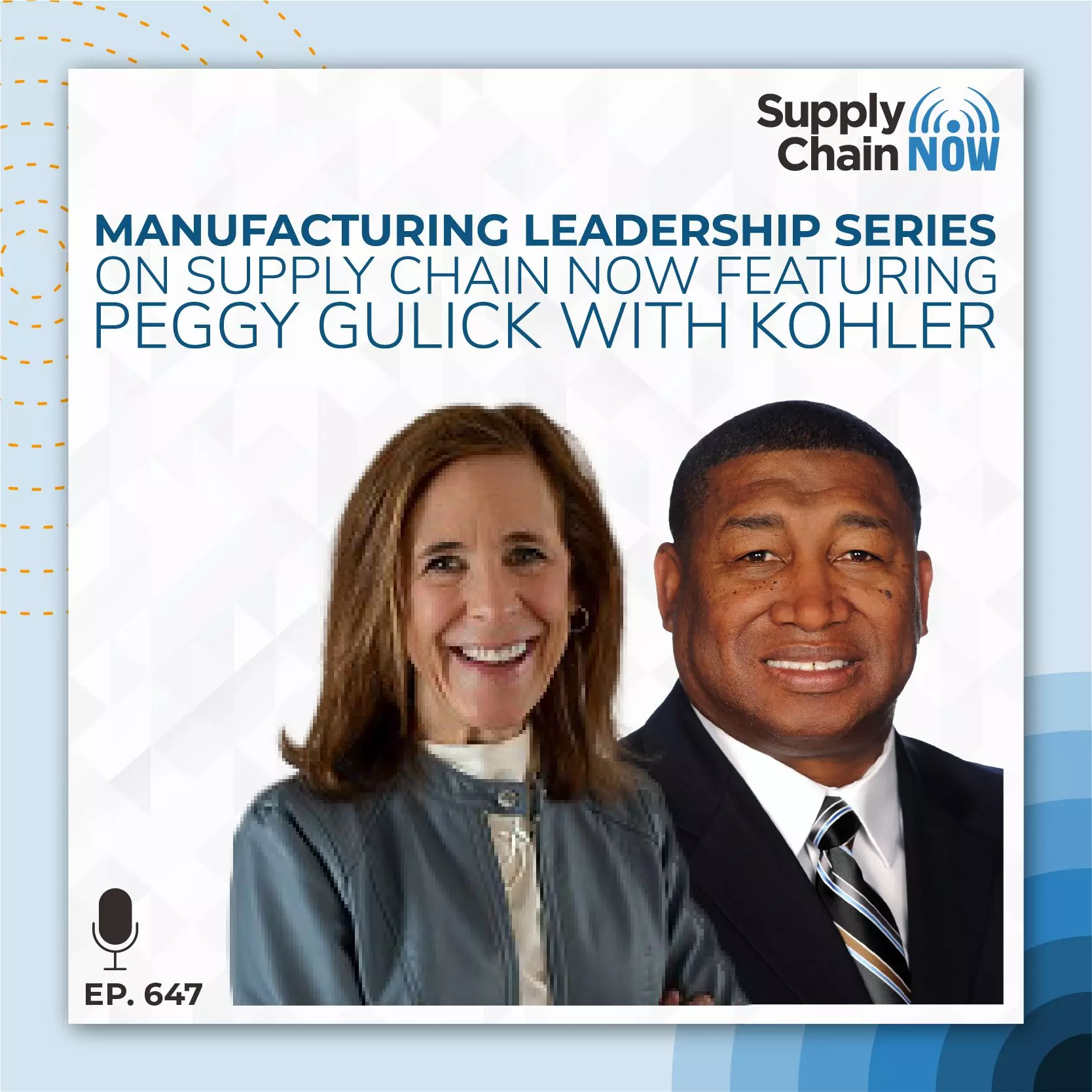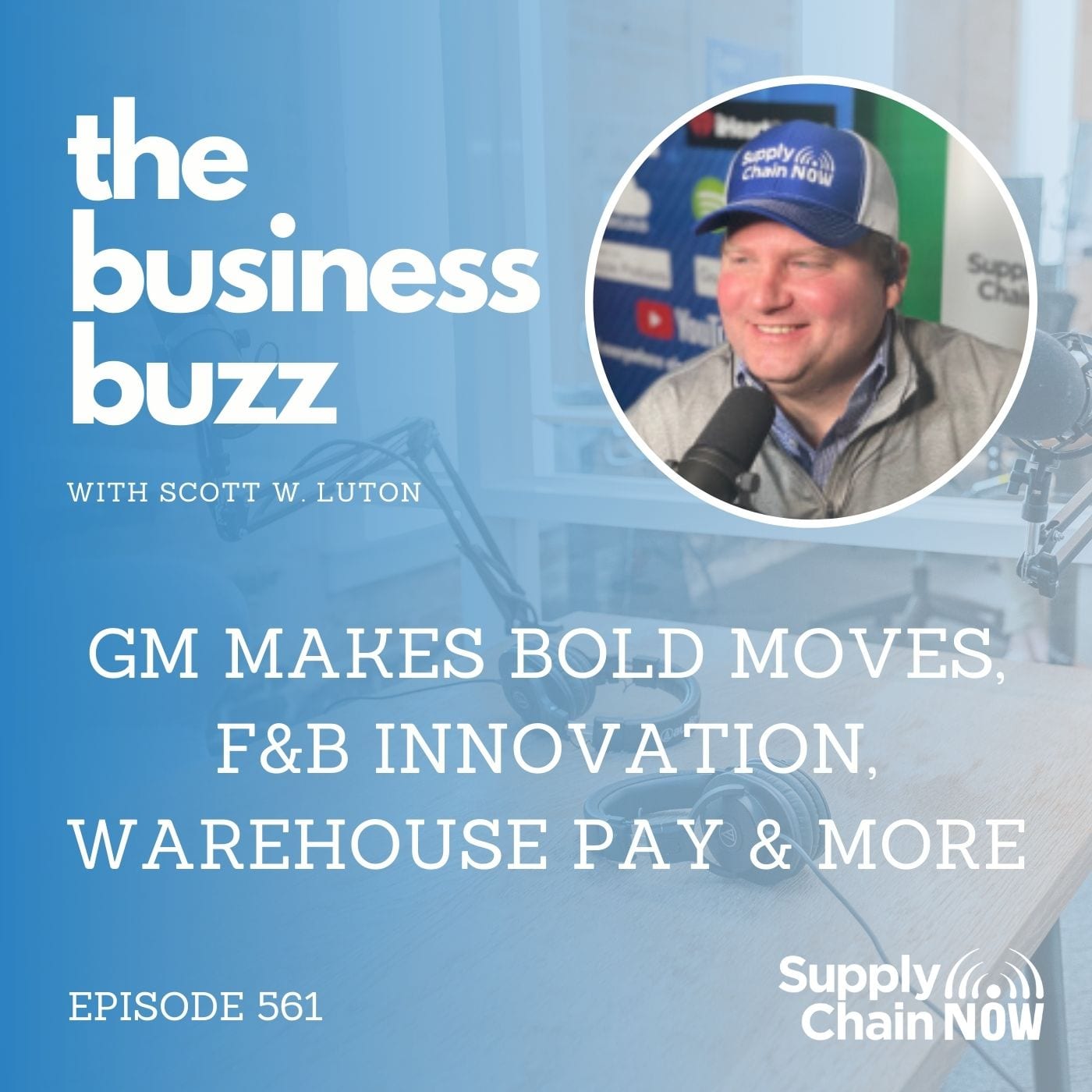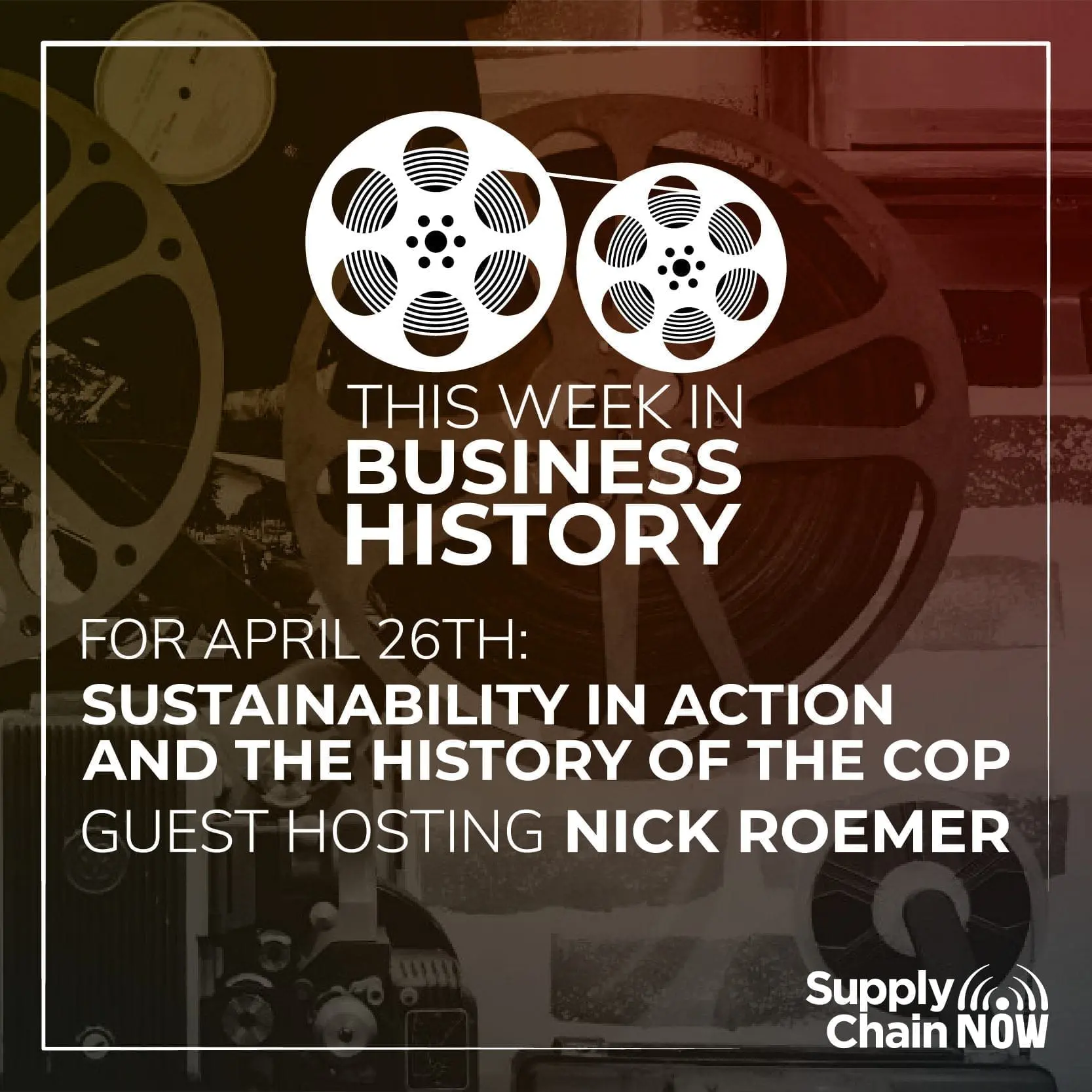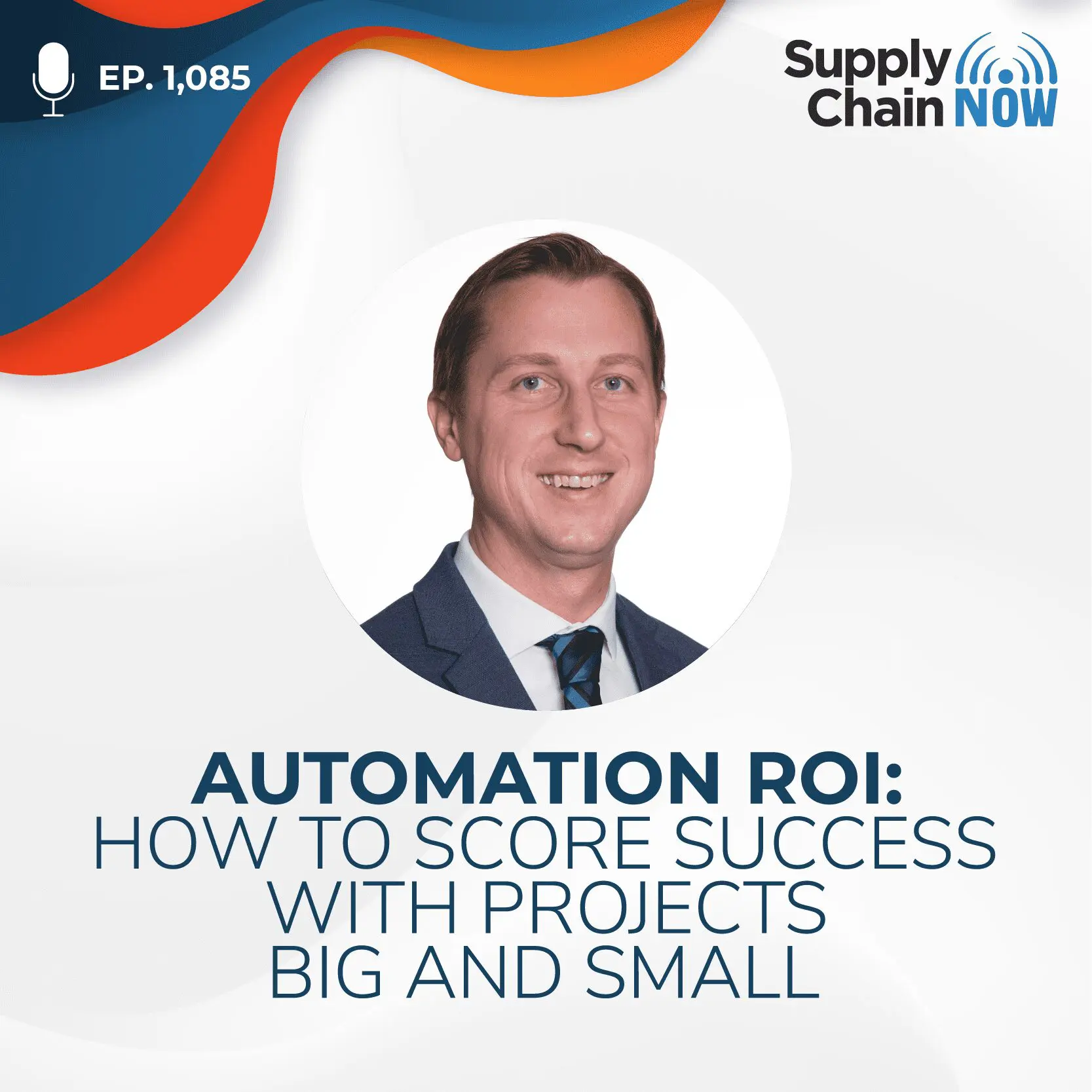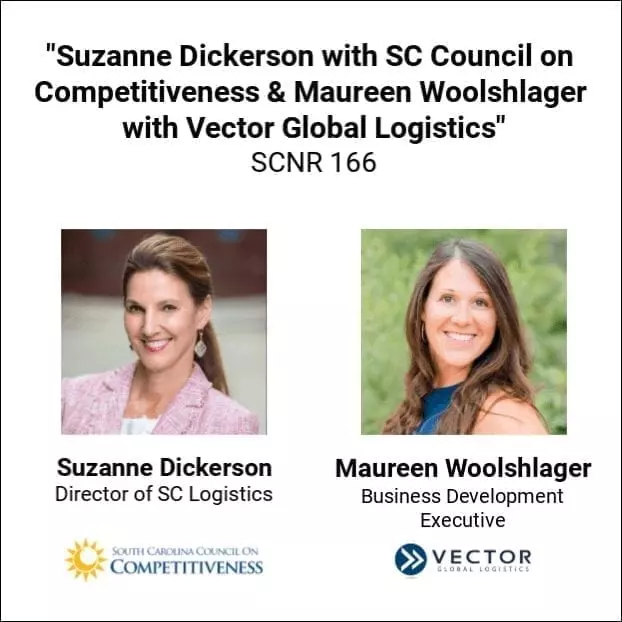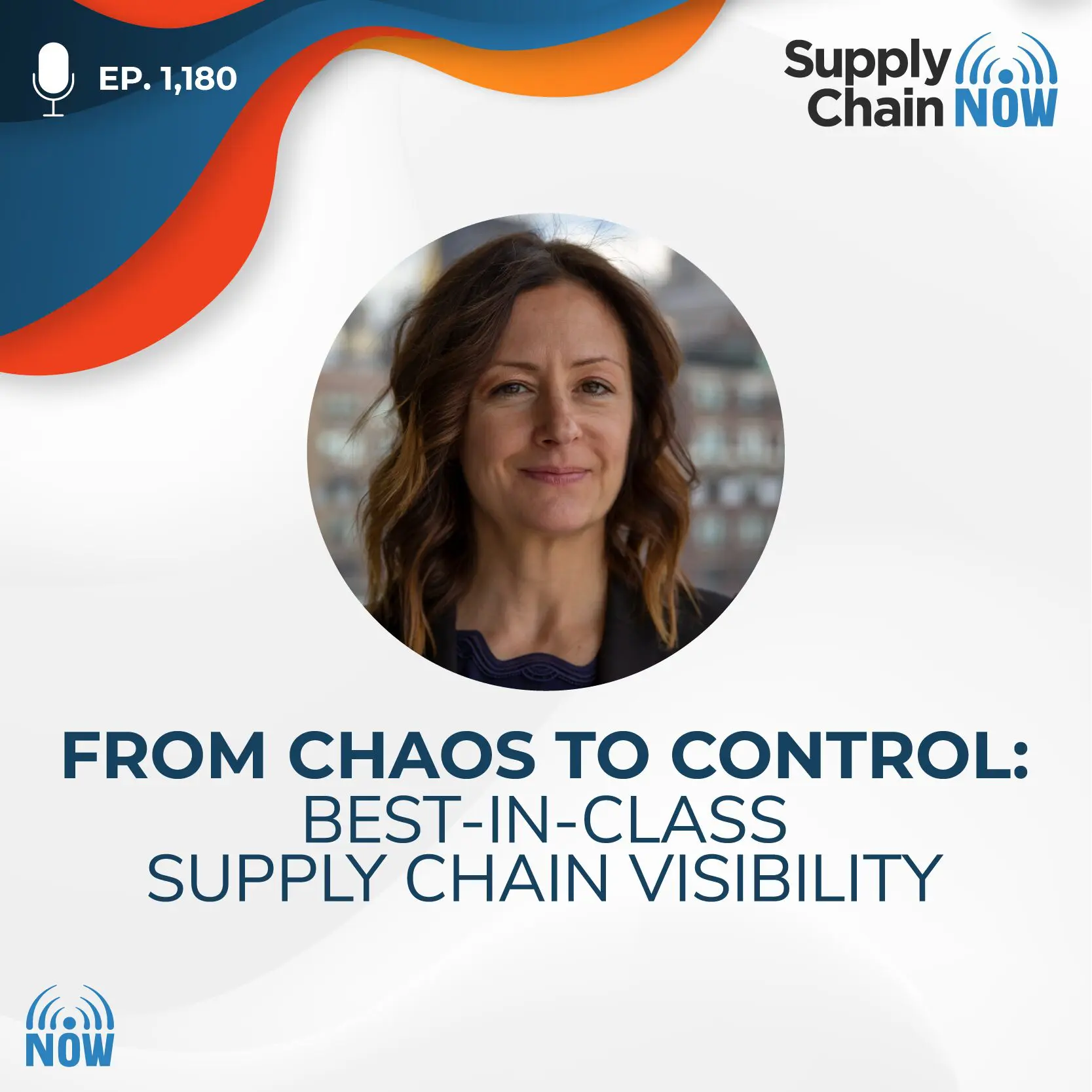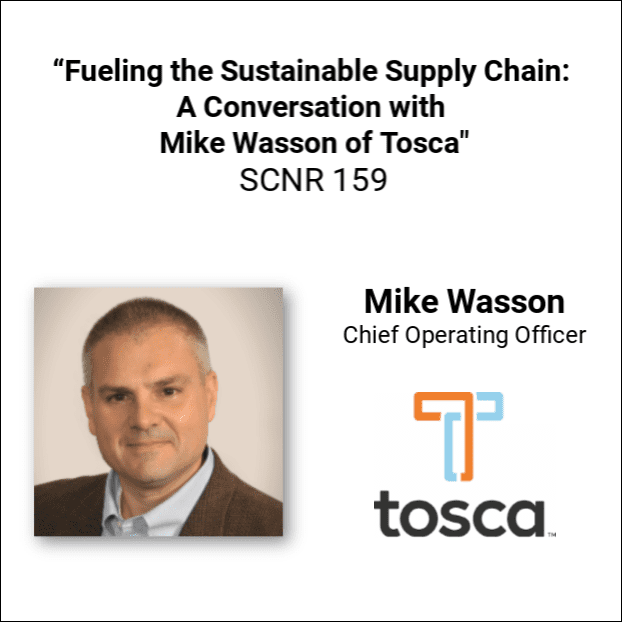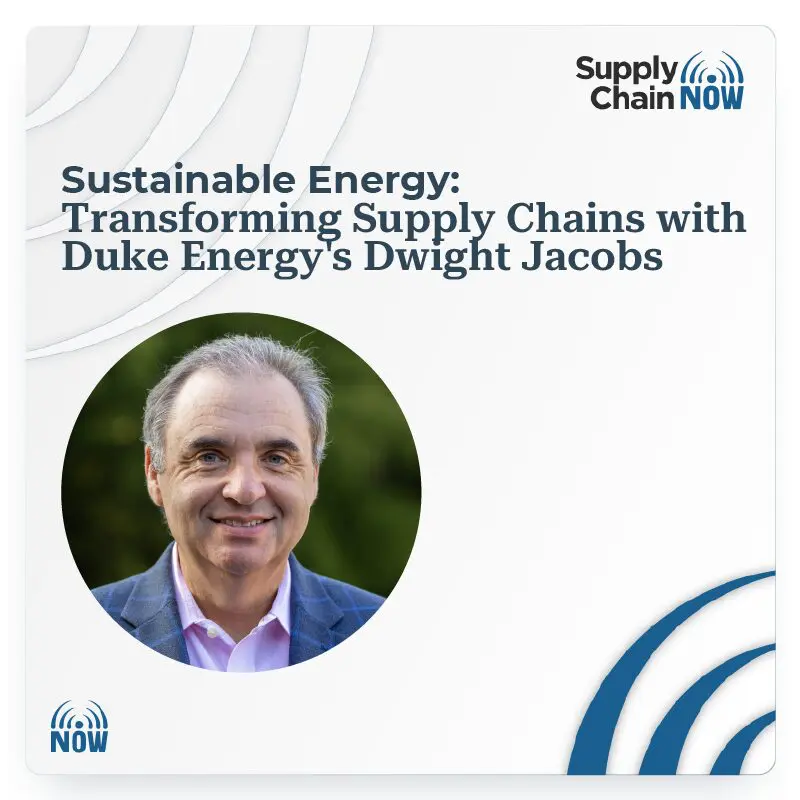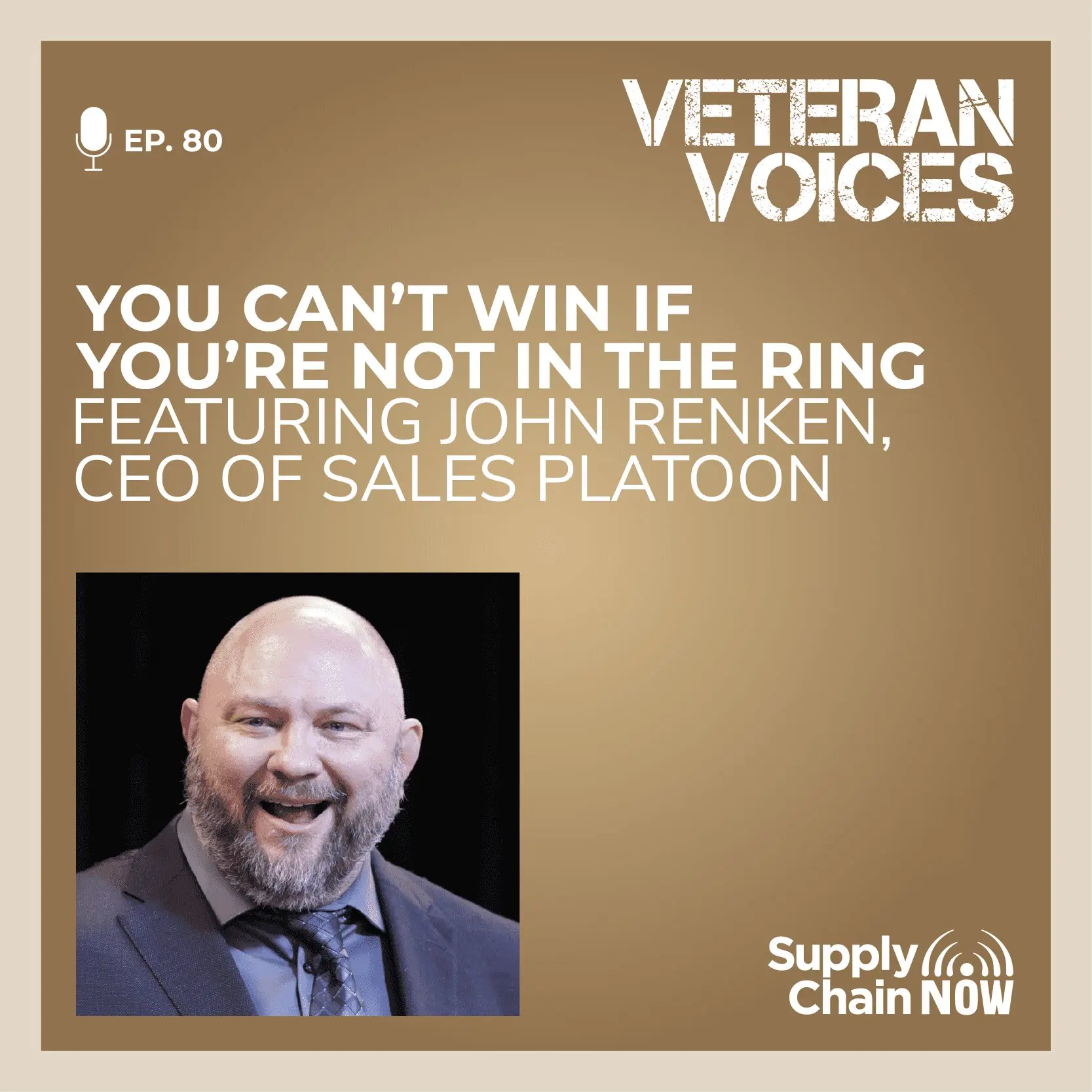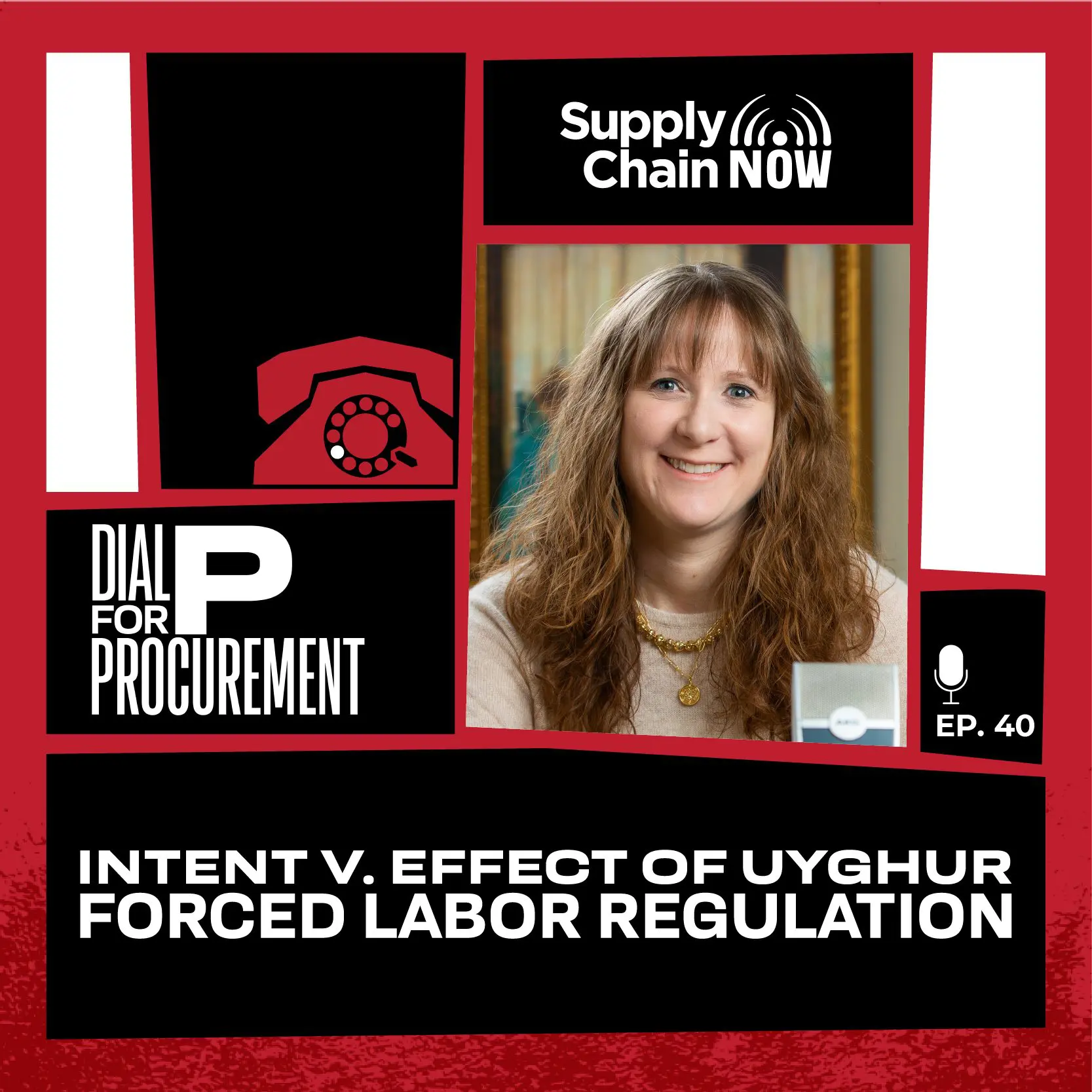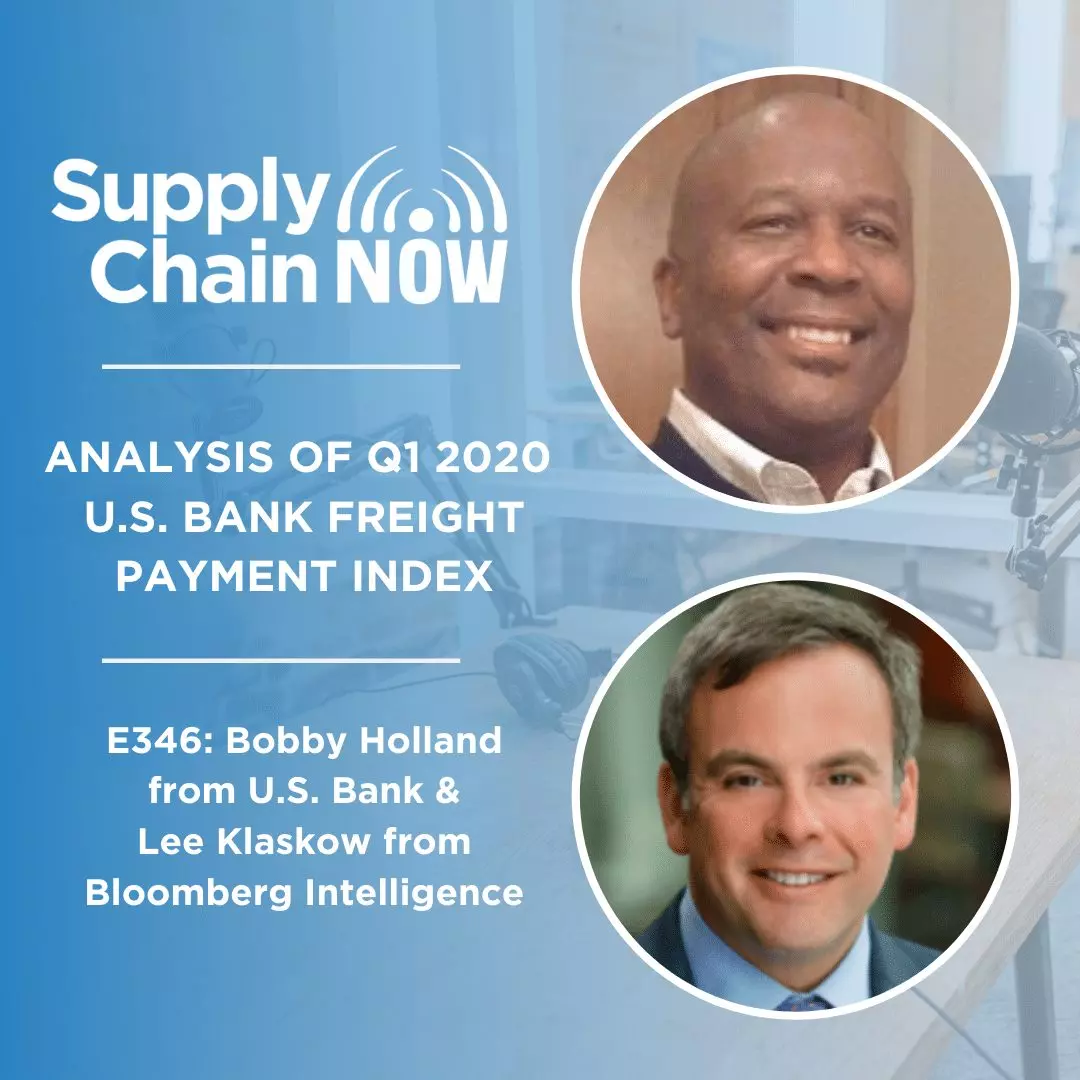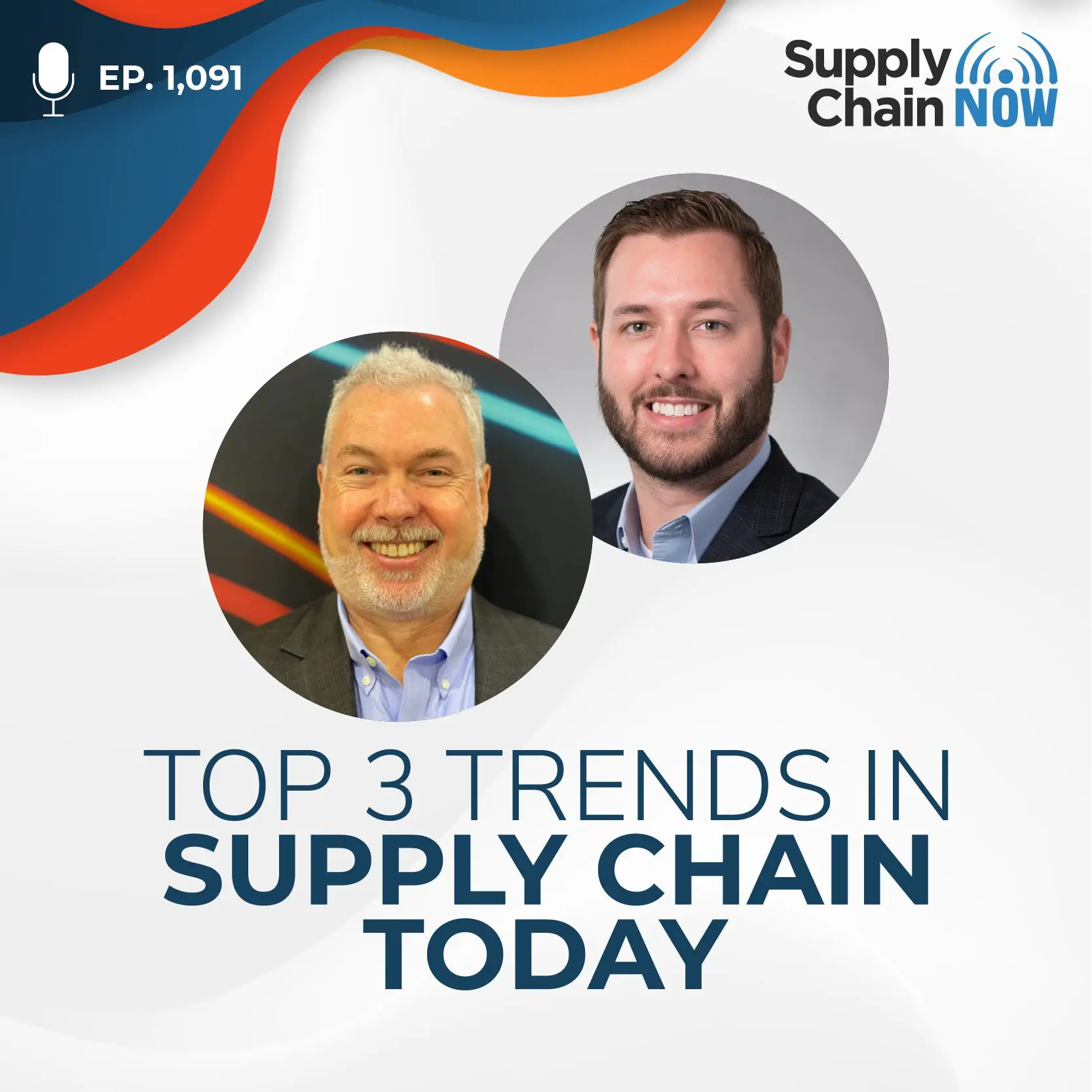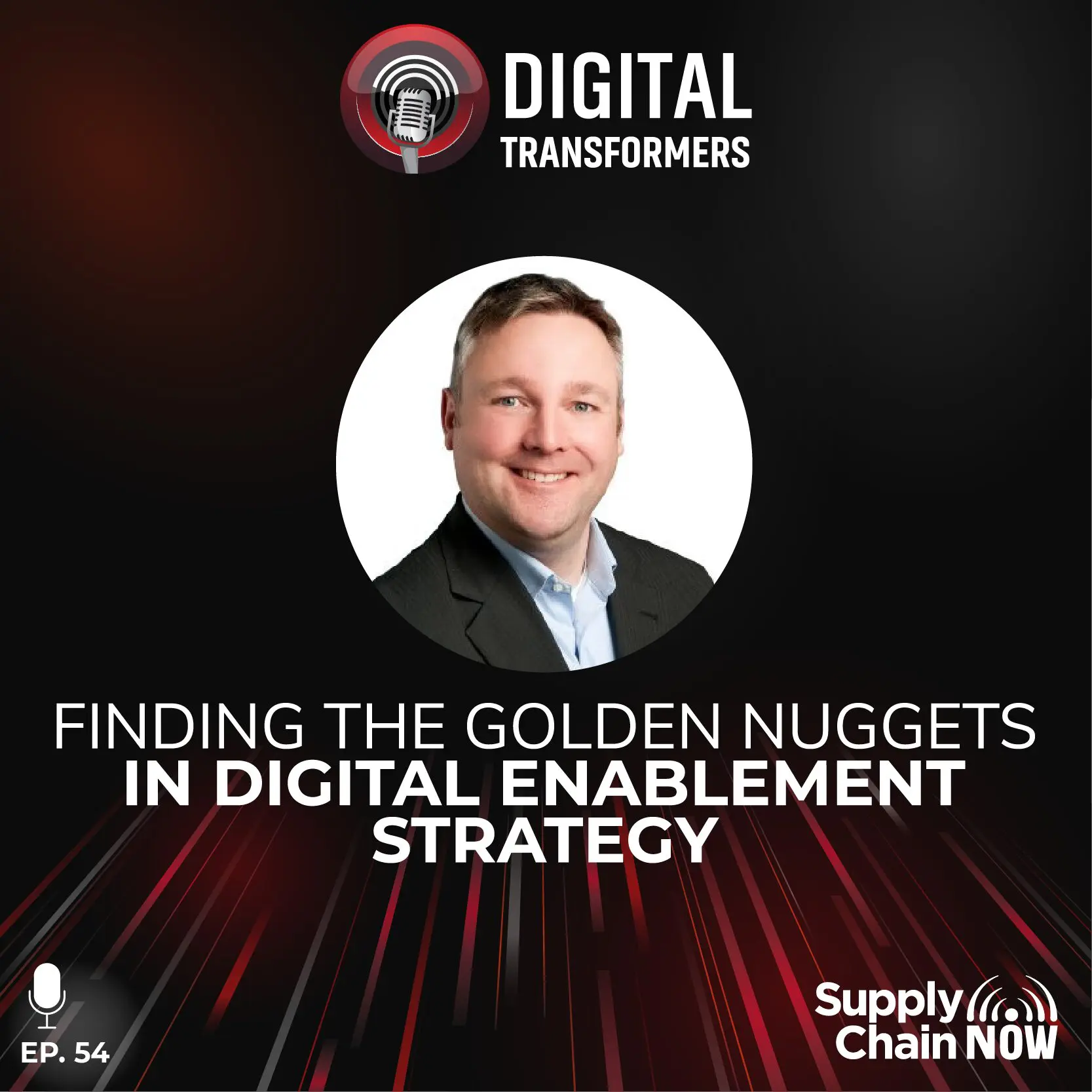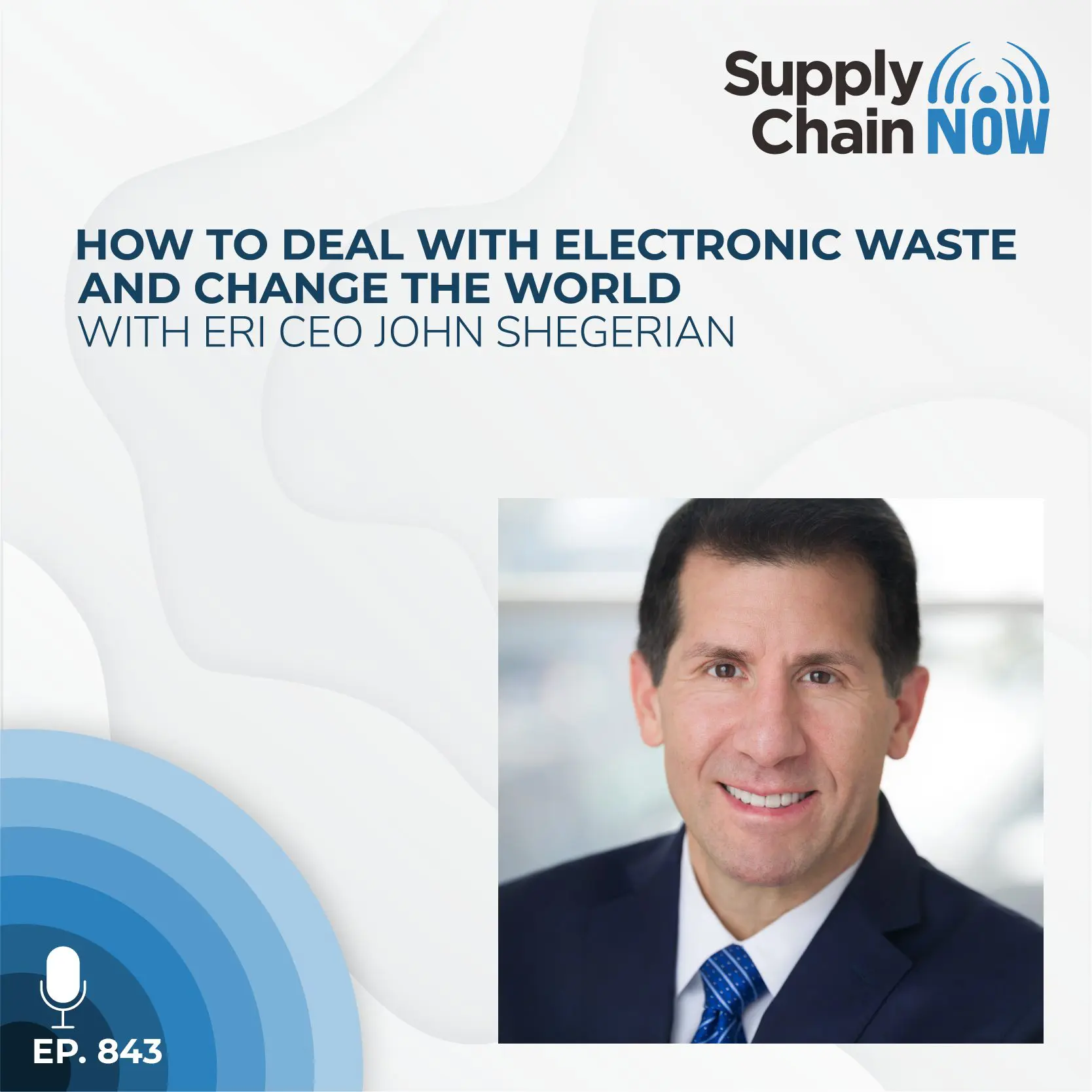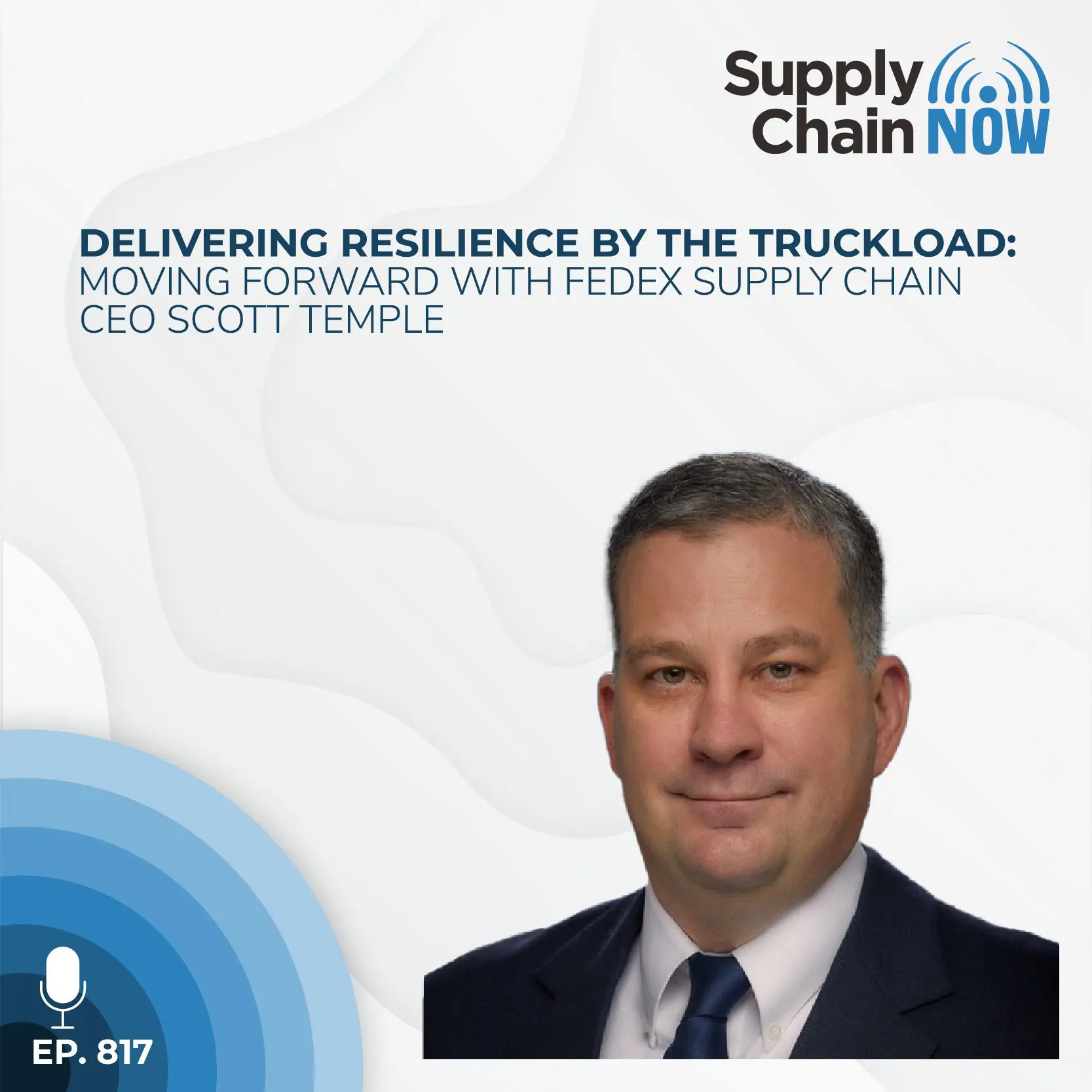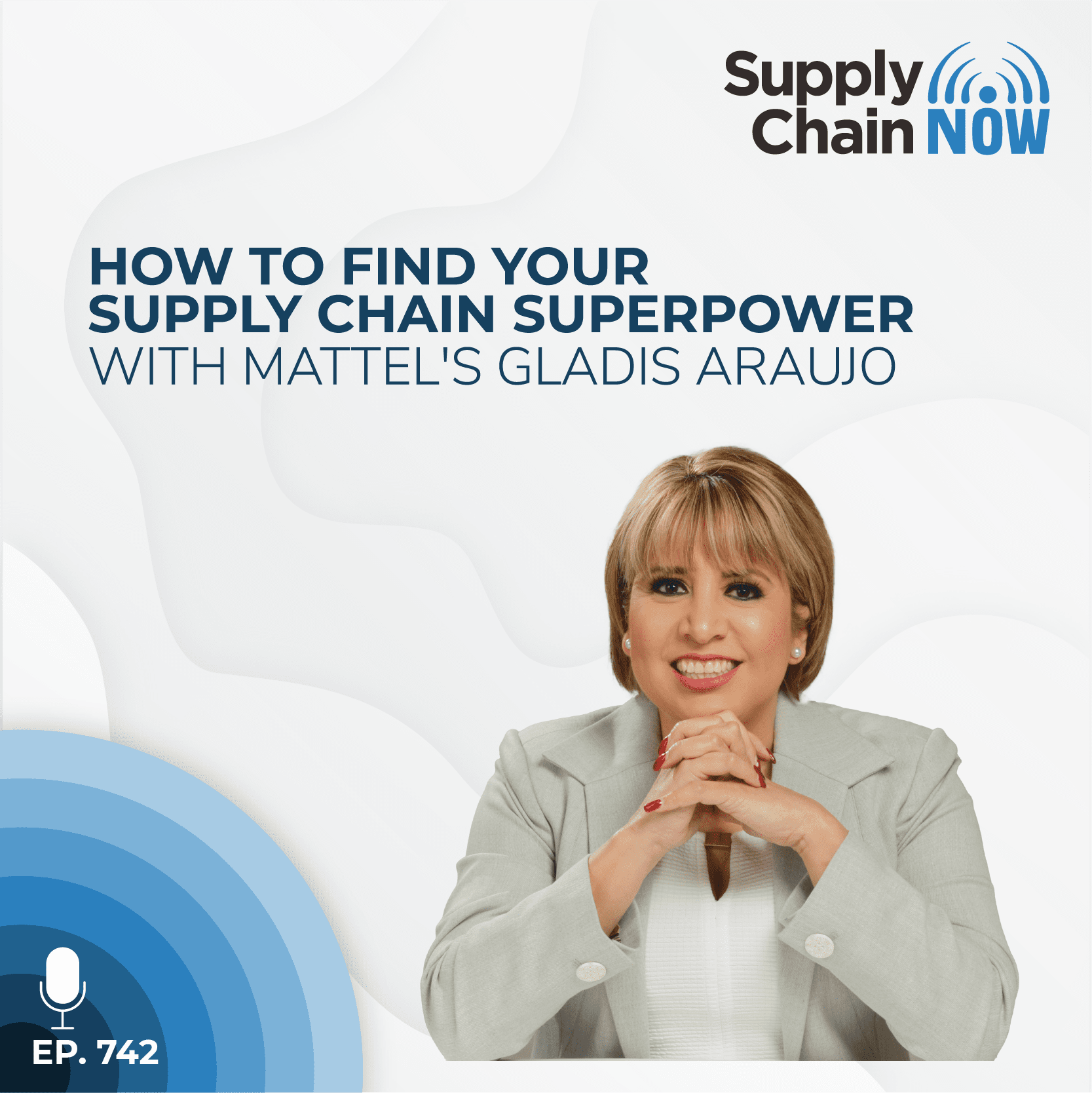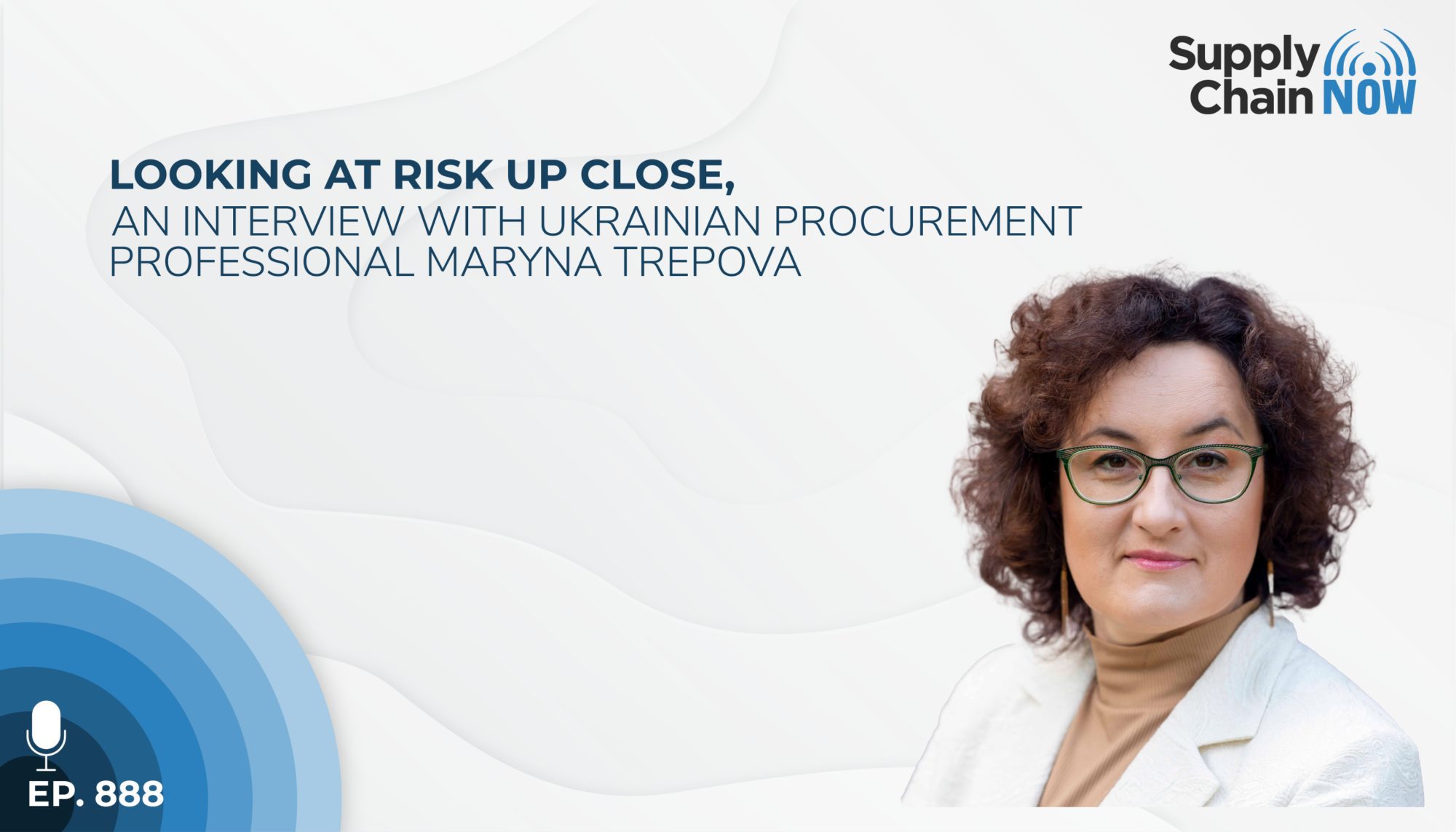
People ask me how I can smile in this situation, but I say that we are still alive - thank God - and we need to continue our lives, supporting each other and supporting our children because they need our support. We can't cry all the time. We need to have some stability and thoughts about the future. It gives us the potential to go further.
- Maryna Trepova, CEO & Founder, IPSM
Episode Summary
The whole world has experienced unprecedented disruption over the last couple of years, but none of it – not the supply shocks, not the port congestion, not the health concerns – comes close to the conditions experienced by the citizens of Ukraine. Some have left the country while family members remain to fight or attempt to carry on. Entrepreneurs find themselves in a precarious position, trying to preserve their businesses against an extraordinary backdrop.
Maryna Trepova is a career procurement professional, the CEO and Founder of IPSM. Earlier this year she left Kyiv with her son to escape the conflict. She is now running her procurement consulting business from Portugal, all the while working to stay in contact with family and friends still in Ukraine.
In this episode of Supply Chain Now, Maryna joins Scott Luton and Kelly Barner to share her perspective on:
• The war in Ukraine, how it has affected her life, family, and work
• How she has learned to build trust with various stakeholder groups and use it as a foundation for creating procurement value
• The importance of having actual relationships with suppliers, not just performance metrics positioned as relationships buy the buy-side organization
Episode Transcript
Intro/Outro (00:00:03):
Welcome to supply chain. Now the voice of global supply chain supply chain now focuses on the best in the business for our worldwide audience, the people, the technologies, the best practices, and today’s critical issues. The challenges and entities Stay tuned to hear from those making global business happen right here on supply chain now,
Scott Luton (00:00:30):
Hey, good morning, everybody. Scott Luton and Kelly Barner here with you on supply chain. Now, welcome to today’s show on today’s episode, we’re gonna be talking with a procurement leader and business consultant that has been deeply impact by the Russian invasion of Ukraine, but there’s a ton of lessons to learn here. We look forward to a really a special episode, right? Kelly.
Kelly Barner (00:00:49):
Absolutely. And you know, as we go into these conversations, we know a lot of our guests, some of them are frequent returners, and we usually have some sense of maybe what we’re going to learn. I’ll speak for myself. I am really looking forward to learning over the next bit of time because I’m not a hundred percent sure what we’re gonna hear in response to these questions.
Scott Luton (00:01:08):
Yes, that is such an excellent point, Kelly. Uh, so we’re all learning together. We’re all in this journey together and we’re looking forward to our guest perspectives here, uh, on a, on a lighter note, uh, a couple of program notes, Kelly, of course these conversations are just part of a, some of the things we’re collaborating on. We’ve got the world famous, uh, DPI for procurement podcast here at supply chain. Now, Kelly, have you really enjoyed your work there?
Kelly Barner (00:01:33):
Uh, always I enjoy all of it. It’s been fantastic. We’ve had great guests, combination of video interviews, live streams, a little bit of experimentation with solo pods. We’ve got a little innovation center going on there as well.
Scott Luton (00:01:46):
<laugh> well, you know, those solo podcasts, those, um, I can’t remember the stage name for ’em, but I, you know, we’ve got a lot of feedback there and you know, I, I, I love kind of that stream of consciousness. Sometimes that those types of, of, uh, those types of content can offer. So, uh, home run stuff there and for our history nerds out there, you gotta check out this week in business history where Kelly and I dive into some of the best stories from our collective past, uh, with new episodes dropped Kelly every, each and every Tuesday. Right.
Kelly Barner (00:02:15):
They absolutely do. And it’s always a surprise what we’re gonna cover
Scott Luton (00:02:19):
<laugh> that’s right. Um, alright. So, um, folks you’re tuned in to one Heckman episode here. We’ve got a very special guest. I’m gonna take a few bullet points and just introduce our guest here. She spent more than 16 years in procurement and supply chain. She’s managed to find savings of more than 170 million in her career. How about that? She’s a CEO and co-owner of I P S M the international procurement and supply chain management, uh, organization. And please join me in welcoming marina. Hello marina.
Maryna Trepova (00:02:59):
Hello Scott. Hello, Kelly. Uh, I’m fine now. Yes. Uh, and I am in safe place. Thanks God. This is the most, uh, answered question, which ask people me and, uh, I’m, uh, in another country in, uh, Portugal and I can, um, continue my job and continue my activity.
Scott Luton (00:03:24):
Mm. So that might be a, an important level setting, uh, upfront before we get to know little more BIA, uh, marina. Um, you lived in Ukraine before you, um, um, left to set up residence and work in Portugal here recently. Is that right?
Maryna Trepova (00:03:43):
Yeah. Yeah. Okay.
Scott Luton (00:03:45):
All right.
Maryna Trepova (00:03:46):
I we’re in Ukraine and I flee from, uh, Ukraine almost two months, so already, and now in Portugal, um, have a permanent residence.
Scott Luton (00:03:59):
Um, uh, so you’re gonna have to pardon us as we work through this conversation because, um, this is new territory for us too, and I hope we don’t ask questions the wrong way, just being upfront and honest here. Uh, it’s har you know, everyone, uh, with a pulse has seen, uh, what’s going on and collectively our hearts have broken, uh, for so many of the great people that, uh, have been impacted by the atrocities and the invasion. Um, before we get into that Kelly Barner and, uh, Hey Kelly, I know as my partner in crime, you’ll, you’re gonna, we’re gonna work through together through this conversation, uh, on a much lighter note marina, let, let, let’s talk about your, uh, where you grew up and let’s talk about, uh, those as early days. What, uh, give us some anecdotes about your upbringing.
Maryna Trepova (00:04:48):
Uh, I grew up in a small town near Keve, so I still lived, uh, for a long time for almost all my life in this town, all my, uh, professional life educational life, where I connected with ski, because it is very, very close. And I, I said that my, um, native place is, uh, Aun. This is small town and Keve as well. Cause I love Keve very, very much it’s, it is really beautiful city. And if we talk about my child put in my, um, young, uh, teenager ages, so I was very typical, um, child, I, uh, went to school, finish school. Uh, I finished, um, musician school. So I, uh, I visited piano classes. Uh, I like music, uh, very much. It is part of my life. Uh, I like ballet, um, opera music a lot. Thanks God. We have such possibility to enjoy music and different musical performance in a ki. I, I really like it very much and, uh, I finished, Hey marina,
Scott Luton (00:06:07):
If I could interrupt just for a second. What’s your favorite? So do you still play music
Maryna Trepova (00:06:14):
Favorite to favorite music? Uh, I like, uh, Latina. I like, um, very much. I like different, uh, souls, for example. Um, Stana so different, different kind of music. And of course I like different classical music. Shaan Kosky unfortunately now it is part of, um, uh, unpleasant moment, I would say, connected with Russia and, uh, also what sorts, uh, bit it is my favorite, um, music, which I like to listen. Uh, and, uh, also I like, uh, some light jazz, so different music
Scott Luton (00:07:05):
<laugh> wow. It really quick, Kelly. Um, I was just talking with our, our team. Uh, yesterday we had a little fun, um, kind of a after work coffee session, we were comparing, contrasting our music interest and at the, all that, uh, some of our team members had a very eclectic mix of musical FAS. I think marina has just topped that that was quite, uh, a variety of different musical styles there. Uh, can you relate to any of that Kelly?
Kelly Barner (00:07:33):
Well, you know, the funny thing about procurement people, Scott and, and marina, I’d be interested to hear if you feel the same way nobody ever set out to be in procurement ever. And so while I will say marina, you’re the first person I think I’ve ever spoken to that went to school for music and somewhere took a hook and ended up in procurement. I am not surprised to find out that you are talented in something that has absolutely nothing to do with procurement and supply chain.
Scott Luton (00:08:01):
So
Maryna Trepova (00:08:02):
Yes, mm-hmm <affirmative>
Scott Luton (00:08:04):
Yes. So, uh, thank you for letting me interrupt you for a second. As we talked about music, music’s one of those things we love talking about here. You were about to share a few other anecdotes, uh, of your upbringing, uh, growing up in ki. Uh, so tell us more about that.
Maryna Trepova (00:08:20):
Uh, um, uh, when I finished the school, I, um, uh, go, went to, um, economic university, Keith economic university, and it was, uh, economic and management, uh, faculty. So, uh, I’m educated, um, economic professional, I would say, yes, I have a bachelor of economy and, uh, uh, master of economy. And I tried myself in different, uh, in different spheres, really. I, uh, searching for myself for a long time. And, um, before procurement, I worked, um, many years in marketing and advertising in research marketing agency in advertise as an agency. So, uh, uh, I, uh, occupied different positions and, uh, I, I liked it very much, but, uh, when I, uh, gave birth, uh, my second child, I decided to change my, um, style of job, I would say. Yeah. And, uh, go from, uh, transfer from advertising agency to the client. So I was looking for different positions and, uh, um, it happened that, uh, I found one, one position, uh, marketing services, uh, by a,
Scott Luton (00:09:57):
Okay. So let’s pause for a second, cuz you’ve sh you’ve shared, uh, a, a, uh, kind of the front end of your professional journey and then a big segue, which you’re gonna, is gonna tee up us up for the rest of the conversation. What did you love about sales and marketing and, and beyond that, what is maybe one thing at that role really taught you about, uh, the global business world?
Maryna Trepova (00:10:24):
I occupied, um, manager of project positions and account manager positions. And before account manager positions, I was junior, um, manager. Uh, I, um, worked is the Ukrainian, uh, clients and with the international clients, for example, my first client who was, um, um, tobacco company, <inaudible> now they changed, uh, the name. Yes. And, uh, McDonald’s so it was, uh, very interesting experience for me, uh, from D different part of this activity really, but it was very different, interesting experience. And, uh, uh, then I, uh, help for, uh, local Ukrainian, um, companies and local UK brand and brand. So what I liked Mo most of all, I liked, uh, um, to provide with, uh, interesting, uh, and creative results. I like atmosphere of creativity, atmosphere of freedom. So I like freedom in general very much. And, um, also I like to have results to see these results because when you work with the client, you can provide them with results and to feel this satisfaction that at least, uh, we have what client wants, or maybe just suppose this client wants something sometimes and don’t want what they want to help them.
Scott Luton (00:12:09):
And sometimes they don’t listen. Do they marina sometimes they don’t listen, but talk about results 170 million in found savings throughout your career thus far. Right. Um, Kelly, I wanna get you to weigh in before we talk about what marina does now. Uh, I, I heard a lot of passion and, and love for what she’s done thus far in her career. Um, what you hear there, Kelly,
Kelly Barner (00:12:33):
I think the thing that’s of greatest interest to me, and, and again, this would be a, a procurement thing to be a marketing services. Buyer is a very special position to be good at for a couple of reasons. Buying services is a lot more complicated than buying widgets components, materials, right? Because you’re trying to up with specs and requirements that relate to people. And there’s so much more subjectivity there, but marketing services above and beyond that, there’s so much creative. So comparing things and typically the marketing team and the organization, not a huge fan of procurement. So to be in that position, you have to be not only excellent at your job, but extremely good at working with other groups of people, some of whom definitely don’t listen all the time. Um, but you have to be an effective collaborator and you have to be really good at the fundamentals as well as sort of the people skills that surround that.
Scott Luton (00:13:32):
Well,
Maryna Trepova (00:13:33):
Uh, can you absolutely right,
Scott Luton (00:13:36):
Please, uh, feel free
Kelly Barner (00:13:37):
To, they don’t like us Scott
Scott Luton (00:13:38):
<laugh> yes. So, so, uh, marina, feel free to comment on that. And then we’re gonna talk about what you do now. Expand a little more on what you do now. So is Kelly Kelly sounds like she’s she’s right on the mark, huh?
Maryna Trepova (00:13:53):
Yes. Kelly. Absolutely. Right. And this is very, um, but a difficult position and very sensitive position. And it is, uh, the challenge to, to be part of, uh, marketing team, I would say yes to, to have the trust from, from marketing team. And, uh, it was the most challengable, um, approach for me that they start to believe me and start to trust me that I can really help them. So, uh, it was my, my first task from my boss to get this trust to, to, um, this trust and to, um, to give them that I can provide them with real results and with real help. Uh, and at the same times it was very difficult, but it was very, very interesting because, um, I realized that I love the job very much. So first of all, I understand people, I would understand people and I feel people very good.
Maryna Trepova (00:15:06):
So that is why I, again, back into the services and create my company to provide services. If you don’t understand, and don’t feel people you can’t, uh, propose and provide services and people will not be happy. And, uh, I provide the services for my internal clients. So I built a very fruitful relationships with them, and I invest a lot in collaboration and in education of these people. So I talked with them one language, first of all, because I, uh, went from, um, marketing agencies from advertising agencies. I know the market, very good. I talked with them one language and I, them, uh, many things, uh, how I propose to cooperate and work with them. So, uh, and also I, uh, well with them on different stages of the projects, not only in procurement part or tendering being part, but all stages, for example, uh, I explain them, uh, that, uh, I can bring them value if they will involve me in the early beginning stage.
Maryna Trepova (00:16:22):
And, uh, I, uh, help them to develop, uh, briefs and, uh, request for proposals, uh, to, to have, have, uh, very good results in tendering process. Then I spent with them on all stages of tendering process. And in the end on this stage of implementation, I also well with them. So they feel my support at my help and then stand that I’m not, uh, they don’t, they didn’t feel gap between us. Yes. Then the stand that we all on the one page, and I explain, uh, my marketing team agencies, all players from the market that we are all one team and we need to work according to the certain rules and these rules, uh, like this. So I developed these rules. I explained everything. I, uh, go step by step sometimes with small steps, but, uh, I had results and, um, like the recognition of my efforts and recognition, uh, of all these, um, investments that I, um, um, I worked in a big international company. This is, it was, um, uh, tab tobacco international. And we have, uh, uh, so-called, uh, CS team, uh, all previous Soviet, uh, uh, union countries. And we worked as a one team and I helped my colleagues to implement the same approach in Kazakhstan, in Russia, in be Russia in Georgia, et cetera. So it means that I did something right. <laugh> and, uh, provide this experience, uh, to other countries.
Scott Luton (00:18:22):
So all of that experience, um, I’m sure rolls up into a lot of what you do now, right. Uh, uh, with, uh, let’s see here, I P S M international procurement and supply chain management. So, so you, you’re still, you’re continuing to do many of those things. You just, you just laid out for us, right. As your, in your current role as co-owner and CEO mm-hmm <affirmative>. Is that right?
Maryna Trepova (00:18:45):
Yeah.
Scott Luton (00:18:46):
So what, um, before we switch gears here, um, what is your favorite, can you give us a favorite recent result or a favorite recent project, um, that, that, that really just epitomizes why you do what you do that, that you really enjoyed?
Maryna Trepova (00:19:05):
Um, it’s interesting question because, uh, we did, um, different projects in the different fears and, uh, for me the most, uh, my, my favorite result or valuable results, it is when, um, client trust us and believe that we can help them. It is the most, uh, important thing my job. And it doesn’t matter if this client big or small, is it big or small company, and it doesn’t matter if we have, um, many millions results or 10 thousands, uh, dollars for example, yes. With your results. So it doesn’t matter. And, uh, of course we have, uh, many, um, different, uh, different companies, D different fears where we provided our projects. And, um, I can just mention, uh, some of them, um, agriculture, uh, market, uh, one small company comparing with all Ukrainian, small, small company, uh, couldn’t mention we couldn’t manage with, um, their procurement activity.
Maryna Trepova (00:20:31):
So they didn’t have even procurement department and, and, uh, CEO, uh, was very skeptic, uh, to work with the consultant. But, uh, he was pushed, uh, by, um, internal auditors by owners to do something with procurement. And, uh, he starts to work with us. And, um, after three months of our corporation, he said that it was the most successful corpor and project with consultant, which he ever faced and had in his experience. And, uh, we increased, uh, the scope of our activity in the contract, uh, with couple of months. And the amount of contract was not so big, huge, but the impact was, uh, wow. And very effective. Yes. Awesome. And we are very, very happy. And from other hand, we have another had another project, uh, uh, it was, uh, very short, but, um, uh, we, we did a lot before was we helped, uh, um, the owners of big, um, company from, um, um, energy market energy produce to evaluate, uh, and help them to evaluate the amount of the contract. It helped them to prepare for negotiation and for Q a process, um, for physician process. And, uh, we did this job very good. We calculated, uh, all elements, uh, for the contract. And, uh, our, our client, uh, was successful in this negotiation and they get all KPIs, which they had, uh, in this, uh, acquisition process. So I think that such results inspire us and inspire other marketplace that, uh, it was it and, uh, uh, such activities, such cooperation with consultants can be very, very successful,
Scott Luton (00:22:59):
Agreed success, also baguette’s success. And, and going back to your first example there, uh, once you, you know, trust is a blessing thing, you know, with it, you can move mountains and get 170 million in savings and beyond. And I love how, how excited that made you once that, that bond, that, um, trusted bond was established. That’s so important. All right. So Kelly, before we shift gears, I wanna give you a chance to comment on what you heard there from marina.
Kelly Barner (00:23:26):
Sure. I mean, in, in truth, it even goes beyond trust, but right, because marina, as you shared, there was a company with no procurement that was very skeptical of the value proposition and everyone loves to be forced to do something by an auditor. <laugh> right. When an auditor says, you have to do this thing, you already didn’t want to do people drag their feet, even if it’s not literally. So building trust in that kind of a scenario, Maureen, I think the fact that you survived marketing services procurement has set you up to be very successful at winning people over to the value proposition and, and truly benefits of working through a formal procurement process. So kudos to you. Many of many other procurement professionals would not have been equally successful under those circumstances.
Scott Luton (00:24:15):
Excellent point excellent point. Yeah. Um, okay. So marina, I know we’re just scratching the surface of what you’ve done in industry to this point. Uh, I spirit and, and the passion for which, uh, with which that you do it, um, we’ll have to have you back on, uh, later this sh later in the year, but, um, let’s talk about, uh, you know, we all know everybody and their brother and their sister knows what’s going on, of course, uh, in, in Ukraine. And, um, it’s a fast evolving situation. As you mentioned earlier, uh, you, you and your family flee and you’re now in Portugal, um, for our listeners, uh, share a little bit about how what’s gone on in Ukraine has impacted not just your, you and your family, but also your work family.
Maryna Trepova (00:25:02):
Um, you all, uh, what, uh, and you know that, uh, we still have a war and, uh, we are preparing for the second, second stage of this war and, uh, saying about me, I believe that we, we will, and, uh, Ukraine will be very, uh, successful in happy country, but now, unfortunately we still have a war. We have, uh, uh, dead people, children and destroyed, uh, houses, destroyed infrastructure, destroyed companies, et cetera. So, uh, our economy in Ukraine decreased 45% and back to, uh, my family, uh, I’m here with my son and part of my family still stay in Ukraine because for men, it is forbidden to, to, to live country and, uh, millions of our men, uh, stay in the houses or other regions, my husband in, in our house. And, uh, my daughter stay in the west part of Ukraine with her boyfriend.
Maryna Trepova (00:26:18):
And, uh, if we talk about my, uh, working family, yes, my company, uh, in place. So we are in different places. Some them, uh, left Ukraine, some of them, uh, stay in Ukraine. We, we try to continue our day to day activity. Uh, unfortunately the scope of our projects decreased, uh, almost all companies in Ukraine faced with this problem. And, uh, anyway, we continue to support each other. We communicate each, each other during many weeks. We start our day with, uh, hello in, uh, chats in messengers, just to be sure that everybody alive and, uh, their relatives and, uh, parents alive as well. So it was part of our, um, wake up, uh, proceed, I would say, yes, first of all, you check all your relatives, their friends, colleagues, et cetera. And, uh, of course for us, it’s very important to support, uh, as much as possible, uh, moral, uh, in moral some activities.
Maryna Trepova (00:27:44):
Yes, we have a course. We, uh, support financial as much as it’s possible. And, uh, we, we changed, uh, our activities. We, uh, stop our investments and we decrease our marketing activities because now it’s not time for, for, for these activities. Unfortunately we canceled, uh, our planned international conference, which we, uh, conduct, um, every year in Kiev, it’s a big, big project and we, uh, planned to do it. We prepared even before new year for this great event. And many people, um, were waited for this event, but not, uh, but now this year, uh, it, it is consulted. I hope, uh, next year we can do it and, uh, support all, uh, procurement supply chain professionals in Ukraine with fresh knowledge and support all these people. So this is what our life. And, uh, we changed our focus. We are looking for international projects now, and we continue to support, uh, uh, local procurement and supply chain professionals in Ukraine to give them some information, to connect people, just to support with words and, uh, with, uh, advices what, what we can do now. And, uh, of course we are thinking now how we will help Ukraine and, uh, professional procurements when, uh, the war end and when we can start to rebuild, uh, and renew Ukraine. So that is what we are doing in our day to day activity
Scott Luton (00:29:43):
Marina that, um, there’s so much there that, uh, is a wake up call, I think for many of our listeners, you know, uh, just one thing you mentioned, one of all so much, you mentioned, and by the way, I admire not only your bravery, uh, but your, your optimism, right, when this war ends, and when we get a chance to get back in there and rebuild, I share that with you. Um, but you know, to start your day with a wake up call to make sure everybody’s still with us, that is such a sobering activity to do that. Most people will never be able, thankfully, maybe hopeful and, and, and hopefully that we can stop that activity or, or the need to do that on you and your family and your work family, uh, mornings soon. But Kelly, that, that just will stop you in your tracks and brings a sense of reality that most people maybe are not familiar with.
Kelly Barner (00:30:39):
No, it, it puts a lot of things into perspective. Scott, you know, better than anybody through some of the other work that you’ve done, it’s really like everyone going through this situation is now a veteran of the experience, right? There are so many times where I might be having what I consider to be a hard day. And then I listen to veteran voices. Right. And you think, okay, I’m gonna recalibrate, I’m having a hard day, or I think I’m having a tough week. And I turn on the news, right? And I see news coming out of Ukraine, even the most inspiring things. The backdrop reminds you keep it in perspective. You’re not having a hard week. Um, so it has been amazing. And marina, we admire the spirit of the Ukrainian people. Like I can’t tell you those still in country, those are abroad supporting loved ones and family members and friends in country. It’s just been an absolutely spectacular thing to watch. And we share your optimism for the situation.
Scott Luton (00:31:39):
Mm.
Maryna Trepova (00:31:40):
Yes. Thank you, Kelly. Thank you. People ask me, sorry. People ask me how and smile in this situation, but I say that, uh, now we still alive things. God, and we need to continue our lives, support each other and support our children because they need our support and we can’t cry all time. We need to have some stability and, uh, some, uh, thoughts about future. It give us, uh, possibility to go further.
Scott Luton (00:32:12):
Hmm. Okay. So Kelly, I, um, you know, as I share on the front end, sometimes you just don’t, as we have these conversations and these interviews, uh, I feel dumb asking certain questions, given everything else that’s going on that both of y’all are speaking to, but again, um, marina, I appreciate you sharing all of that with us and, and, um, opening the eyes of some of the folks that hadn’t had the opportunity to, to talk with someone like you that’s been personally impacted, but still, um, you know, move on and, and, and get to the priorities of your day and, and keep your eye on when all of this will come to an end. Uh, so thank you very much for sharing. So Kelly, with that said on a, on something so much lighter, but, you know, also pulling, pulling the perspective and expertise of marina here. That is that’s part of the good news here, right?
Kelly Barner (00:33:05):
Absolutely. No it is. And, and marina, so one of the things that we would love to hear more about is maybe how, what you’ve lived through has changed your perspective as a procurement professional. You know, one of the things, and, and we’ll talk a little bit later about, you know, maybe overlap or division between procurement and supply chain. But one of the things over the last few years that everyone has had in their role is risk. Um, and I would be interested to know how, what you have seen and what you have experienced has maybe affected your perspective on scenario planning, right there, there tend to be likely scenarios slightly more likely, less likely Scott’s in a warm place. He’s probably not too worried about blizzards I’m in the Northeast, not too worried about tornadoes, just to use a weather example. Most of us do not work for companies that have a wartime plan. And so I would be interested to know maybe how your thoughts about scenario planning from a corporate perspective and as a consultant have been affected by what you’ve gone through.
Maryna Trepova (00:34:14):
Yes. Uh, it is, um, one of the most important topic now from my point of view. And I mentioned already in my articles and my posts and in some recent interview, which I gave, uh, to, uh, procurement magazine and, uh, I was fan of risk management and, uh, backup, uh, plan, plan B plan C to create these plan. And I provide it, uh, always on my trainings and for my clients, these messages that you need to create, um, risk management metrics and risk management plan, you need to implement. And, and, uh, for some categories, procurement categories, it is obligatory because, uh, there some, uh, critical procurement materials or services you need to mitigate this risk. You need to understand how you will manage this risk. And, uh, during last years I understand it very good that, uh, this is key to success, uh, in current world.
Maryna Trepova (00:35:31):
So maybe I just felt something kind of know, because sometimes I can’t explain why it’s important for me, but I push this message to procurement environment, to our visitors of webinars, uh, uh, conference, et cetera. And I explain that it is critical and important in procurement and in supply chain and, um, uh, last years. So it looks like universe prepared us for, for, for, for these events and, uh, showed us that we need to be, uh, not so, um, sure. In next days, for example, on months, yeah. We shouldn’t think that everything will still the same as previous years, the world is changing and we need to change our, uh, mindset, our activity and our behavior. And of course our business, according to this changing. So it means that if you, uh, don’t have, um, this habit to, uh, evaluate risks and this, uh, practice and habit to implement this risk plan to your, um, day to day activity and to your procurement threat, if you don’t have your continuity procurement plan, so you will fail.
Maryna Trepova (00:37:04):
Yes. And, uh, you need to have it, uh, of course for, uh, big production companies or big businesses, it is more important, but for small businesses as well, it is also very important. And you need to know and understand how markets can be changed, uh, in different situations. And what, what do you want to do? What, what will you do? Yes. Uh, when you faced with these problems. So, uh, I explained that these part of, uh, um, knowledge and activity is very important now for procurement, we can’t think that somebody will calculate it. For example, financial analyst or credit management analyst or special group will provide us with this plan, know you are responsible for your sourcing activity, you’re responsible your vendors and suppliers. You need to develop this plan and deliver this plan to all your stakeholders and all colleagues and negotiate this plan with key suppliers and you and your suppliers need to know how to react and how to behave in different situations. So, so that is the main, um, learning lessons, which I would like to, uh, tell, uh, to our listeners, to your, to, to your, uh, listeners of, uh, this, uh, podcast and to all procurement professionals. And of course you need to include gel political topics into your yes, uh, risk management, uh, plan and, uh, metrics. It is very, very important.
Kelly Barner (00:38:51):
Yeah. Now you mentioned those key suppliers and supplier relationships have been so unbelievably important over the last couple of years. Uh, I don’t know if you share my perspective. I feel like we’ve talked about supplier relationships for 10 years, 15 years, but we didn’t actually realize and feel how important they were and start taking new, meaningful steps towards investing in them and making them real relationships until we were so tested by first the pandemic. And now certainly the challenges that companies are experiencing in Ukraine. What have you learned about some specific key suppliers or about supplier relationships that also might provide an example for companies based here in the west that aren’t under the same pressures, but would like to build stronger relationships with their suppliers?
Maryna Trepova (00:39:47):
Uh, Kelly, you, uh, absolutely are that last three years, uh, this years are peer of supplier relationship management in procurement and supply chain. So from the first week of, um, COVID, uh, period quarantine, uh, in March, I wrote my first post in Facebook and in LinkedIn, uh, suppliers. So I said that your first focus now suppliers, so you shouldn’t, uh, squeeze them. You shouldn’t, uh, press them. You shouldn’t, uh, in include, uh, all penalties, et cetera. Uh that’s right. Which is mentioned in the contract. You should sit and talk with them. You should listen them and you should ask questions, how we can manage all these difficult situations all together. And, uh, what I saw in, for example, Ukraine, and in many other countries, countries, what happened with suppliers. So, uh, they start to talk with them, especially with key suppliers. So their activity, uh, procurement activity, supply chain activity were focused on, uh, relationship with suppliers, how to support them, how to, uh, stay alive altogether with suppliers.
Maryna Trepova (00:41:24):
Yes. How to, um, to, uh, to have not disruptive, uh, supply chain. And, uh, do we have back plans as well? Yes. And now, uh, we talked, uh, yesterday with, uh, procurement professionals and with, uh, my other colleagues about what happened now. And they said that all suppliers now, so flexible, nobody didn’t want to, uh, stop the contract. They didn’t include these, uh, penalties, uh, in the contract and they postponed their peer rate of payment. So they said, they’re waiting for payment. They a, uh, cut it, uh, uh, amount of payment for small amounts. And they said, we will wait, don’t worry. We understand everything. So all participants over the conversation, uh, which I conducted to understand what happening on the market said that, uh, uh, they have very good relations with, with suppliers. Of course, unfortunately some suppliers disappear because they faced with bankruptcy or, or unfortunately even destroyed in some, uh, Eastern part of Ukraine.
Maryna Trepova (00:42:51):
Yes, we understand that it is the war, but who’s still alive. Uh, they understand everything and they’re very client oriented. And from the part of procurement, uh, company becomes very supplier oriented. So this is the period of building and maybe supporting the bridge. Yeah. If your breach is not so good, so you need to some making repairing of this bridge and SM, and, and only now procurement and supply chain professionals understand what does it mean SM it is not only words or for example, it systems, as I understand in previous years, yes. SM it is something like SAP. We do some activities with vendor management, et cetera, cetera. Yes. We have data. We analyze the data. This is SM, but real SM when you understand market and you talk with market always yes. And you built your image of the customer of the company with, um, suppliers and build this image on their market. And you invest in these relationships. It is the most important because people doing business and, uh, we cannot conclude people from this process. So this part of a process will not be digitalized anyway. So we need to understand that Roberts can’t substitute us in this part of activity. They can provide us with data. They can provide us with some conclusions and recommendations, but building relationships with internal stakeholders, with suppliers, it is the most important part of the job now. And in future in procurement and supply chain part from my view.
Scott Luton (00:44:55):
So Kelly, before you respond, if I could just add, um, of course, two, two things, two lessons. I think that, that, uh, we’ve all learned together and marina is really speaking to, uh, number one suppliers. Remember, so how you treat them yes.
Kelly Barner (00:45:11):
Forever.
Scott Luton (00:45:12):
Remember. Right. And then number two, I think, as we’ve all learned, given the toilet paper fiasco of the last couple years, you better hang on and squeeze the Charmin, but don’t squeeze the suppliers, right? Mm-hmm <affirmative> so 2, 2, 2 lessons to learn and live by. Uh, but Kelly, what else did you hear there?
Kelly Barner (00:45:33):
And, and I’ll add a third to that, Scott, and this is where I thought you were going. Deed’s not words.
Scott Luton (00:45:39):
Well,
Kelly Barner (00:45:40):
Absolutely. We’ve we’ve talked. So we love our acronyms and procurement, and there was always S P M and S RM S P M is supplier performance, manage management as RM supplier relationship management with that little leg coming down from the bump on the R is so small that sometimes we would forget it was there. And we would say S RM, but our deeds would be S P M. And I think that’s really what has hopefully so switched now over the last couple of years,
Scott Luton (00:46:15):
A hundred percent. If I had an emoji I could pop up, it’d be a hundred percent, lots, and lots of a hundred percent. You’re both, you are making such, uh, outstanding points. Um, so Kelly, uh, as we dive a little bit deeper in Marina’s procurement thought leadership, where are we going next?
Kelly Barner (00:46:31):
So we have a couple more question and sort of about taking what you’ve learned about business continuity and, and keeping procurement going, um, really putting it into action. So, you know, we talk about having risk mitigation plans or backup strategies, and suppliers are a key part of that. So we might say, if I can’t get this product or service from supplier a, then my backup strategy is either to switch all or part of the demand to supplier B, which is a lovely idea. But in reality, it’s not a switch flip. There are phone calls and processes and things to be worked out and money to move. And all of those complications, what would you say are the things that we tend to either oversimplify about putting a backup plan into play, or maybe just don’t think through until we’ve actually been in the position of having to take a backup plan off the shelf and put it into the game.
Maryna Trepova (00:47:32):
Um, I think that, uh, you need to think about it. You need to develop this plan. You need to discuss this plan with, uh, all stakeholders inside the company and you, you shouldn’t close the eyes and think, oh, it’s will not happen because I think it will not happen and, uh, forget about it. Uh, I know that for some people it did the strategy and, uh, they, they did it in implement the strategy and still implement the strategy. And sometimes my husband behave like this. Oh, it cannot be happen. Never will happen. And, uh, when I predicted some events, he said, oh, your switch, <laugh> you predict <laugh> you predict many things. Yes. But it’s yes, Joe, but it’s part of life. Some people behave like this. And, um, unfortunately, and, uh, I, I think that, uh, you, you are professional and you should act like, uh, professional and you should have to box with different instruments and provide with your proposals and with your predictions and with your calculations.
Maryna Trepova (00:48:52):
And, uh, maybe top management, maybe C think, uh, okay, uh, this scenario will not happen. And, uh, we will not invest resources, money, time into this scenario, but you are prepared. You, you have everything, you calculated everything and you, you need to, to have, and even if it’ll be some very small actions, for example, testing some samples, some materials yes. Or just started some negotiations with suppliers just to, to try to understand, can it work. And, uh, uh, can they, they produce, for example, some, um, materials to substitute, uh, existing suppliers, or even to substitute 5% of, uh, volume, uh, producing by existing suppliers. So you need to, uh, make some actions looking for these, uh, potential suppliers, visiting exhibitions, uh, visiting some, uh, marketplaces, et cetera. This is part of, um, mitigation plan. Yes. This is some actions to, to, to decrease this risk. Uh, even if you have, uh, these, um, suppliers, uh, on the stage of, uh, testing and negotiations, but it is some action instead of doing nothing.
Kelly Barner (00:50:25):
Yeah. And, you know, maybe just one more sort of procurement, operational question marina, before I, I send you back to Scott for, for more discussion, you know, there’s what procurement does traditionally. There’s what supply chain does traditionally. But as we start working more and more closely with our first tier suppliers, a and in some cases go into the supply chain to actually work with them, with their suppliers, how do you think maybe, excuse me, the ideas of procurement and supply chain, either from a skills perspective, from a benefits perspective, from a process perspective, how are those two practices the maybe still distinct or maybe moving closely together? What observations would you have around that?
Maryna Trepova (00:51:15):
You mean how deep a procurement should go in supply chain and, uh, analyze. Yeah, I think that’s a to know
Kelly Barner (00:51:22):
That’s a good way to look at it. Exactly. Maybe what should procurement try to learn more about what’s cloud considered supply chain in order to be good at the things that we need to do today?
Maryna Trepova (00:51:34):
Mm-hmm, <affirmative> very good question because, um, uh, very often I start my explanation, how everything it works, uh, for many people, for procurement, for logistics, for top management, I just mapping them all supply chain process and supply chain network. Yes. To explain how it works and how everything interconnected. And I explained that, uh, um, procurement should understand and know very good, uh, the early beginning stages of the process and, uh, to, you know, tier one is oblig, of course, but tier two or tier three, and understand very good all markets and all sources where it comes from. And, uh, til the, uh, til the stage when you see the final results. Yes. For example, some, um, metal details or some, um, coconut oil. So how it’s created in the bag, this coconut oil, which you use absolutely producing many things, for example. Yes. But you need to extend it very good.
Maryna Trepova (00:52:49):
And which factors Inre on different stages on the market, on, uh, suppliers of supplier, supplier suppliers. Yes. And, uh, that then you will understand, uh, first of all, how to predict, um, behavior on this market and situation on this market and, uh, which leverages you have to change the situation and in to, to, to, to bring the value to your company. Yes. It’s not only about economy, but it is about the value mm-hmm <affirmative>. And then the most important, unfortunately, when we are talking about transactional activity of procurement, they don’t understand how their activity influence on the final results. So they just see their part of the activity, but this part is very important and don’t feel, don’t understand, for example, how their job influence on the final product and happiness or unhappiness of, uh, final customers, or are they satisfied or not satisfied? So what does it mean for them?
Maryna Trepova (00:54:02):
So they don’t feel, uh, the full into the process. And, uh, from this perspective, I, uh, I’m sure that, uh, all procurement and supply chain, uh, specialists, they should know very good, uh, what they are doing and they should understand how, uh, everything current and how it works like clocks. Yes. These wheels in the clocks. Yes. And, uh, I, I have very good example in one project, uh, when these different parts of supply chain, they don’t understand each other, don’t understand, uh, why it doesn’t work. And they had very bad results and they have, um, some spoiled product, et cetera. So they have some problems. And we just say the first stage of, uh, our process transformation process, you just need to meet once or two times per week and discuss your problems and see analyze the figures. So just, uh, week by week, week by week, you need to understand how it is in interconnected and, uh, how different processes influence of each other.
Maryna Trepova (00:55:28):
So it is very simple things, but after some months they said, oh, we understand how it works. <laugh> we understand now that we need transformation and we go deeper. Now we, uh, hear each other, we change, uh, some elements of the process and we further to the production part, and we want to, um, improve some production process to, to, to decrease level of, of, uh, uh, sales products level of, but production results. So yes, it works like this. And, uh, and, um, supply chain, it is more than logistics. Unfortunately, many people think that supply chain is logistics, but it is not logistics. It is very complicated things. And, uh, uh, half of a year I wrote, uh, that now, uh, all people in the world know what it doesn’t mean supply chain because they don’t have their products in time. That’s right. Yes. Yes. Lead time, decreased, uh, price decreased, why it happened. Wow. Right. Everything changed. Yes. And now everybody understand what is logistic and what is the supply chain. Yes,
Scott Luton (00:56:57):
It is. Uh, you know, the way we view it here, it, it, it is the, it’s more the, the ecosystem than just, and not say just, but the backbone, you know, transportation, logistics being the backbone of global supply chain. So that’s a great point marina that we loved making around here, time and time again. Um, okay. So I really enjoyed, and I’ve got my 18 pages of notes just out of view here, uh, from, uh, the last few questions and whatnot and marina. Thanks so much for your time. I got one question before I make sure folks know how to connect with you, uh, based on your experience, which, which procurement skills would you say are most transferable to critical situations? No matter of, kind of the functional space where, where you may, uh, be a professional in,
Maryna Trepova (00:57:46):
As I already mentioned that, uh, communication, it is the most critical things. Yeah. Uh, which is very important, like in private life and business life, it is very, very important to talk to people and, uh, ability to listen. People. It is very difficult. Unfortunately, not everybody can listen people. Uh, the second is, uh, critical thinking. So you need to stop, you need not panic and to think critical, uh, about information, which you get about decisions, which you need to, to make at this moment, for example. Yes. Uh, then it is, uh, very important to, um, have a plan. So ability to develop plans. It is like not in critical situation, but to be prepared for critical situation. Uh, I think that many procurement professional supply chain professionals, uh, understand it and make lessons learning for the future, that you need to have a plan, um, as minimum for critical activity for critical procurements.
Maryna Trepova (00:59:08):
Yes. And, uh, analytical skills is very important. So we have a huge, uh, huge, uh, information, a lot of information and a lot of data. And you need to understand, uh, which information you need, uh, which data you need and how to analyze this, uh, all information and which conclusion you need to do. So, uh, first of all, uh, uh, ability to work with this information capacity to work with this information and, uh, making, uh, decisions, making conclusions. And of course we mentioned already about leadership. If you are a leader, if you want to a position of the leader in supply chain and in procurement process, you need to have, uh, um, brave, I would say yes to, to, to, to make this responsibility, to take this responsibility and to make decisions, make conclusions and make proposals to act, or to react in proper way, so, and deliver your decisions.
Maryna Trepova (01:00:30):
So, uh, this is part, uh, is not very powerful, still in procurement. Unfortunately, many procurement professionals say, oh, my part is so small. Yes. I’m very small part of the process. What can I change? Yes. And I, listen, I hear it very, very often. And I explain that you can change a lot. The, my colleagues. So, uh, changing in small part of the process can, uh, bring a lot of value economy. Yes. But sometimes very often it is not economy mm-hmm, <affirmative>, it is, um, helping to, to keep stable supply chain. Yes. It is helping in bringing innovations, et cetera, et cetera. So leadership and, uh, um, uh, your very clear and stable position in delivering this, this position is very important in critical situations because you need to take this responsibility and to be responsible for your actions.
Scott Luton (01:01:42):
Yeah. Mm. Lot of good stuff, uh, there, Kelly, uh, and, and I would argue a lot of it applying directly to procurement skills, but there there’s lots of broader plays there. Uh, you know, starting the first things she mentioned is communication. You know, we, I think we all take communication for granted so often. And I see it where I see it most is when we’re doing problem solving outside of what I’ll call work. Um, you know, uh, spare part issues for appliances. For example, we’ve all probably experienced a lot of that in the last three or four years, just trying to nail down part numbers and dates and, and just specifics so that we kind of know how to simplify the problem. And then we can get to hopefully, you know, keep it small and keep the solution required small rather than blow it up. And all of a sudden in quick order, you’ve lost sight of the facts, right. And when you lose sight of the facts, regardless of your procurements supply chain, or, or you’re not even in, you know, global supply chain, uh, you lose the ability to keep it small, keep it solution and, and keep it to be a small headache. So anyway, but Kelly, that was one of my favorite parts that marina really spoke to about you.
Kelly Barner (01:02:54):
I, I think she’s right on about the procurement mindset we think, oh, we’re so small. How much can we do? And then you think about what we learn from an environmental perspective that, and I may not get this a hundred percent. Right. But if something happens to the honeybee, everything on earth falls apart, the whole ecosystem naturally falls apart. Right? Little tiny seemingly harmless, fuzzy little bumblebee in your flower, out your window if they go away. Right. So even the tiniest little player has an important role to play in the overall system. Um, I think Marin’s right. I think a lot of procurement professionals do think small. Um, I think we’re starting to think a little bit bigger, but we still have some work to do in that area.
Scott Luton (01:03:38):
You know, as, as cool as procurement’s gotten, we can’t use a honeybee example anymore. It’s gotta be more like the, the great white shark or the grizzly bear or, or maybe, you know, I’m just kidding a little bit, but it’s really cool to see how, how important procurement has become, um, in light of recent events. So, uh, it’s a profession with a lot more respect with the that’s Ernest seed at the table. So marina, um, you know, it doesn’t do justice again, as Kelly mentioned, we’re big on deeds, not words around here and, and, you know, there’s sometimes you just wanna reach through and, and, you know, not only give folks a hug, but fix what’s going on, stop, what’s going on, you know, so we can, we can, you know, get back to, um, the smaller problems that are still problems in, in industry.
Scott Luton (01:04:23):
And, and, uh, so hopefully we can reconnect with you, uh, maybe a few months down the road, but in the meantime, you know, I, I love the work. You do, you know, you hit our radar when you’re being interviewed for, um, uh, a big procurement magazine out there, I think, uh, and I love that you don’t, you know, you keep giving all this, you’ve got so much to give, right. Uh, and as you said earlier, you know, your, your charge is to be optimistic. Your charge is to keep moving forward. Uh, and, and you’re helping so many people. So how can folks kind of tap into what you do? How can they connect with you?
Maryna Trepova (01:04:59):
Um, so, uh, you connected with me via LinkedIn and, um, active on LinkedIn page. Uh, you can find me, uh, there also, you can find me on Facebook. I am active on Facebook. I post my thoughts, my recommendations, uh, different information, LinkedIn, more professional and Facebook, uh, different part of my life, profess bulls, uh, my private life. And, uh, my thoughts about, uh, the world Ukraine, et cetera. And, uh, if you like it, I will, uh, have request that accept your request, uh, on Facebook. And we will in contact and LinkedIn, of course, as well. I always happy to have, uh, people professional in any sphere, not only in procurement
Scott Luton (01:05:52):
Well said, and, you know, we’re gonna make it really easy for our listeners, right? We’re gonna, uh, publish some of those social links that, um, marina has been speaking to. You’re one click away by checking out the episode page. So, uh, just, you know, you’ve made our, our week here our day or month you name it, um, um, uh, a lot of inspiring point of view and insights and disposition really, uh, from my perspective here today, uh, Kelly, but we, we think and say goodbye to marina. Any final thoughts on your end, Kelly,
Kelly Barner (01:06:24):
Just that marina, please let’s absolutely stay in touch, uh, uh, clearly all of the distance between us and the difference in our circumstances. Every single thing that you said about procurement today resonates with me. So clearly there’s an awful lot of commonality I’m thrilled to have met you. Um, and I am looking forward to staying connected and, and learning from you in the future.
Scott Luton (01:06:47):
Hmm,
Maryna Trepova (01:06:47):
Absolutely. Thank you very much for invitation. I’m very happy to talk with you today. Thank you.
Scott Luton (01:06:53):
Let’s do it. So, uh, again, everybody, um, make sure you connect and follow and engage with our wonderful guests here today. Uh, big thanks to, uh, marina Truva, uh, co-owner and CEO at international procurement and supply chain management. Thanks so much marina. Wow. Um, Kelly so much there really, uh, there’s you, you know, even without the backdrop, holy cow, I know mean’s a dynamo and then the backdrop, uh, and, and some of her thoughts there really, uh, a jampacked, uh, episode and conversation. And, uh, uh, and I enjoyed your, your take that deed’s not words thing. Um, you know, it’s such a, it’s such a simple Mo, but it’s so critical. And so universal, whether you’re talking supply chain procurement you’re talking or, or anything else in life. So I appreciate you spiking football on that.
Kelly Barner (01:07:51):
<laugh> absolutely. No. And, and there were three things that really stood out to me. I mean, clearly Marine is an exceptional individual, but as proof I would like to offer up these three things, starting with the most important one, her husband admits when she’s right. <laugh> this is, this is huge. I know it was not the focus of our conversation. That is an accomplishment <laugh>, but the fact that she’s a successful marketing services, procurement professional, I cannot stress how difficult that is building that trust, especially when people don’t wanna be involved. That is an unbelievable achievement. And then of course working and living through the circumstances that she and her family find themselves in and doing it with hope for the future and a smile on her face. She is truly an exceptional individual. I’m so thrilled. We got to interview her,
Scott Luton (01:08:41):
Uh, completely agree and an inspiration, uh, you know, great. As you were saying earlier, when you think you’ve got problems, you know, I know put yourself in other folks’ shoes. So, uh, big thanks again to our guests here today. Marina Trov, uh, with inner national procurement and supply chain management, uh, big, thanks to Kelly Barner, uh, check out, dial P for procurement here at supply chain. Now check out buyer’s meeting point, check out, um, uh, art of procurement, a lot of good things, uh, that you’re Kelly. I, I’m not sure how you’re getting sleep in life. Uh, you’re up so much, but, uh, admire your work and thanks for your time here today.
Kelly Barner (01:09:16):
Absolutely. Scott, thank you for inviting me to join you.
Scott Luton (01:09:19):
You bet. Okay. Folks, hopefully you, uh, enjoyed today’s conversation. Hopefully you drew, uh, not only best practices and, uh, uh, a different perspective on this journey role on, but inspiration from our guest. Uh, I tell you what, um, I sure did. Uh, so we’re gonna conclude like we normally do, but really I think it, it adds a lot more meaning when we, when we sit down and, and learn from folks like marina, you know, you got lots of choices in this life, but on behalf of Kelly and me and the whole team at supply chain, now we urge you to do good to give forward and to be the change that’s needed. And on that note, we’ll see next time, right back here on supply chain. Now, thanks for buddy.
Intro/Outro (01:10:01):
Thanks for being a part of our supply chain. Now, community check out all of our programming@supplychainnow.com and make sure you subscribe to supply chain. Now anywhere you listen to podcasts and follow us on Facebook, LinkedIn, Twitter, and Instagram. See you next time on supply chain. Now.
Featured Guests
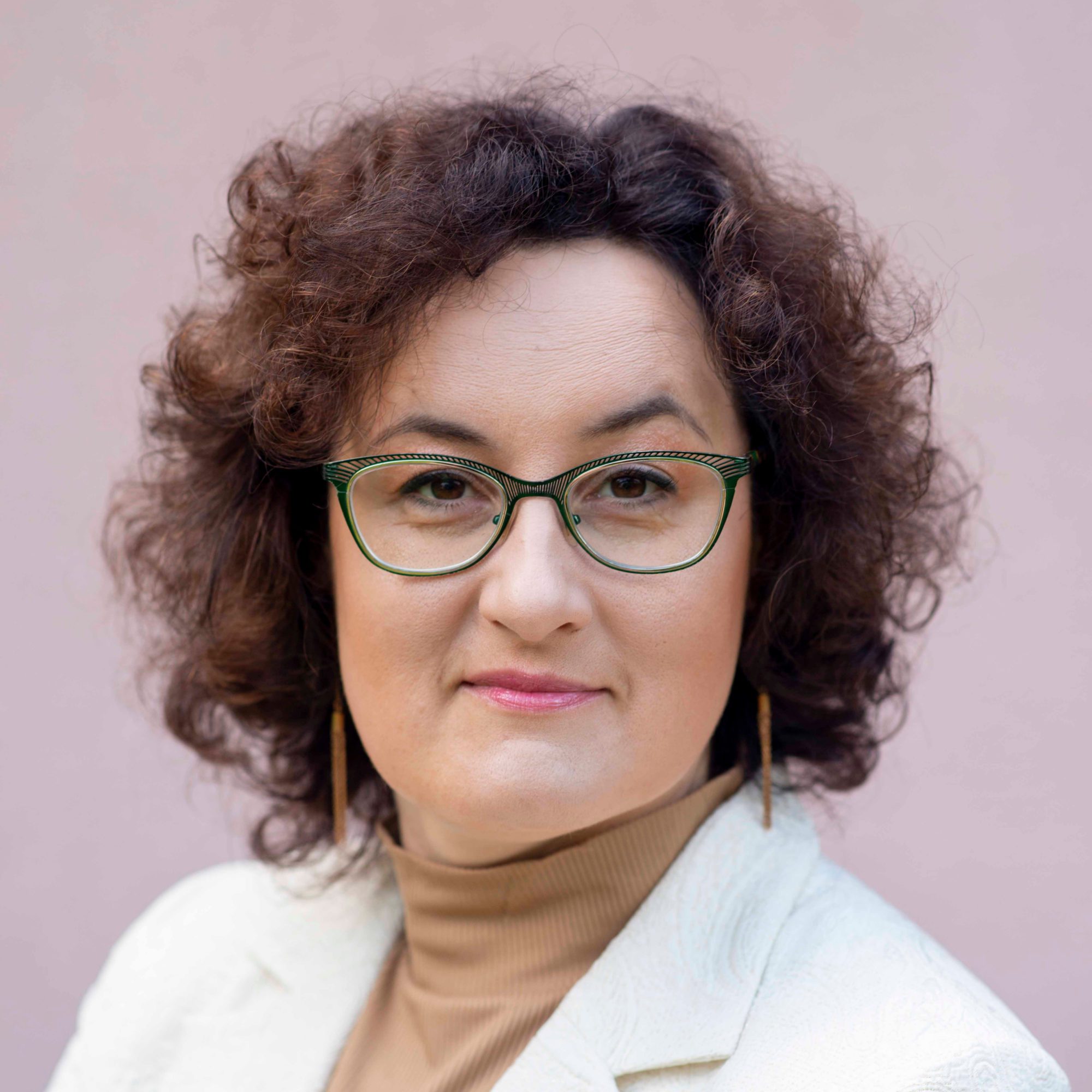
Maryna Trepova is the Co-Owner and CEO of IPSM. She is a procurement and supply chain professional with over 16 years of experience. Maryna has full-scale international expertise in public procurement and commercial sectors in Ukraine, Georgia, Kazakhstan, and Switzerland. She has expertise in different consulting projects, category management, vendor management, and procurement system optimization. Connect with Maryna on LinkedIn.
